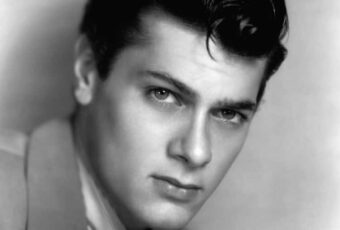A Different Look
When Bugs Bunny first appeared on TV screens, he had quite a different look from the Bugs we know and love today. His first appearance was in Porky’s Hate Hunt in April 1938. He looks totally unrecognizable here!
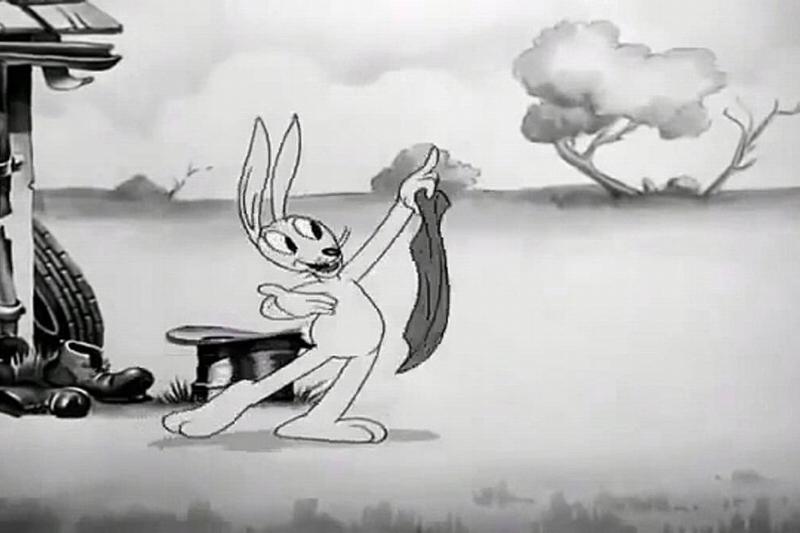
A Different Look
Name Origin
Looney Tunes animator Ben “Bugs” Hardaway created the beloved character, who was initially named Happy Rabbit. When he was working on the concept, his co-workers would refer to his animation as “Bugs’ Bunny,” and the name stuck. The rest is history!
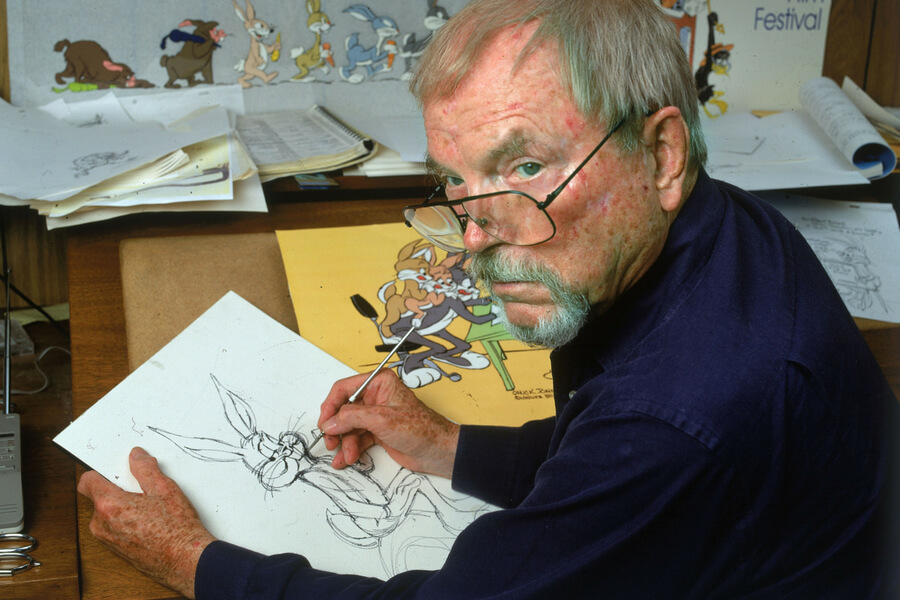
Name Origin
Not A Bully
Bugs’ creators wanted to make sure that he didn’t seem like a bully. That translated to the fact that Bugs never actually started any fights and only continued the fights others picked with him in order to defend himself. You might notice that other characters like Daffy Duck and Elmer Fudd are the main ones who start to pick fights with him.
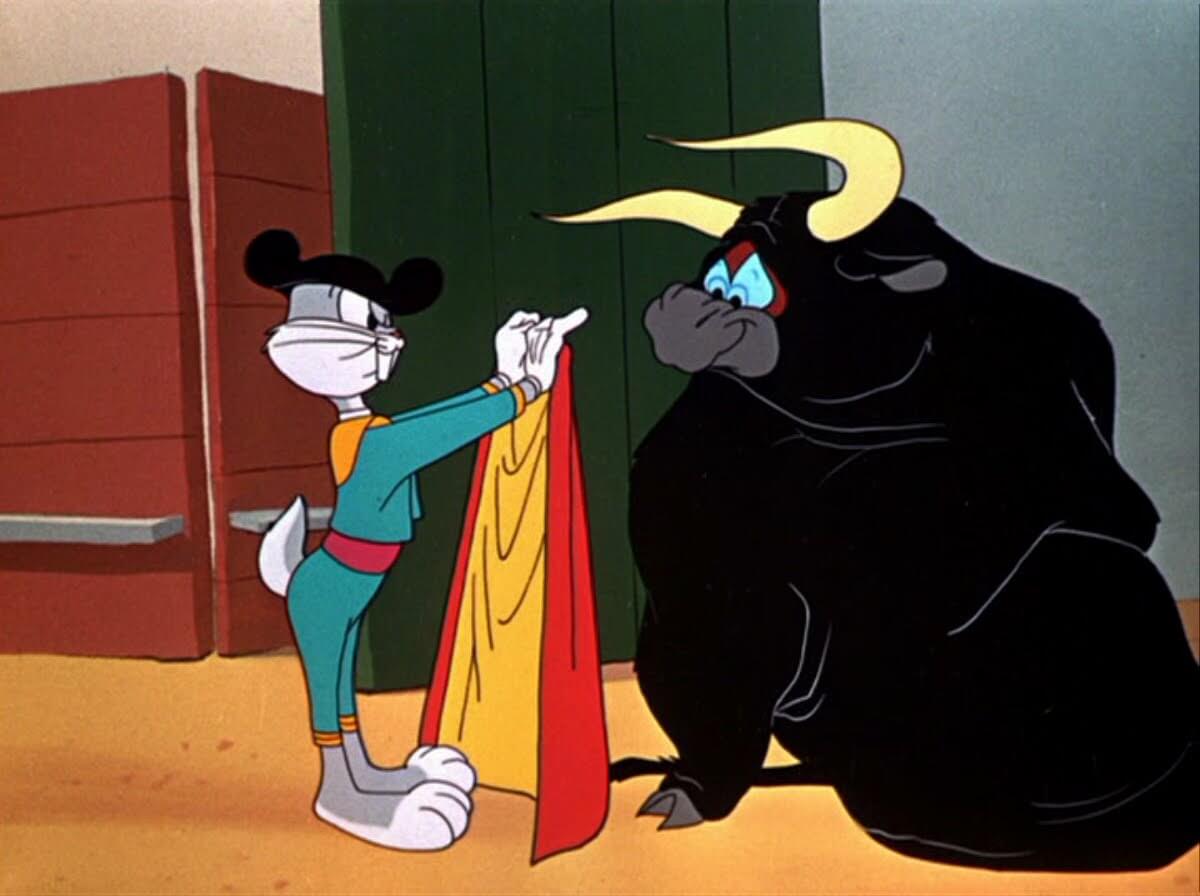
Not A Bully
A Brooklyn Boy
While he’s always seemingly on his way to Albuquerque, he was actually born in Brooklyn, which is why he has the signature accent. Even though his creators said that he is from Brooklyn, of course the animators came up with the character in Los Angeles, where the animation studio was located.
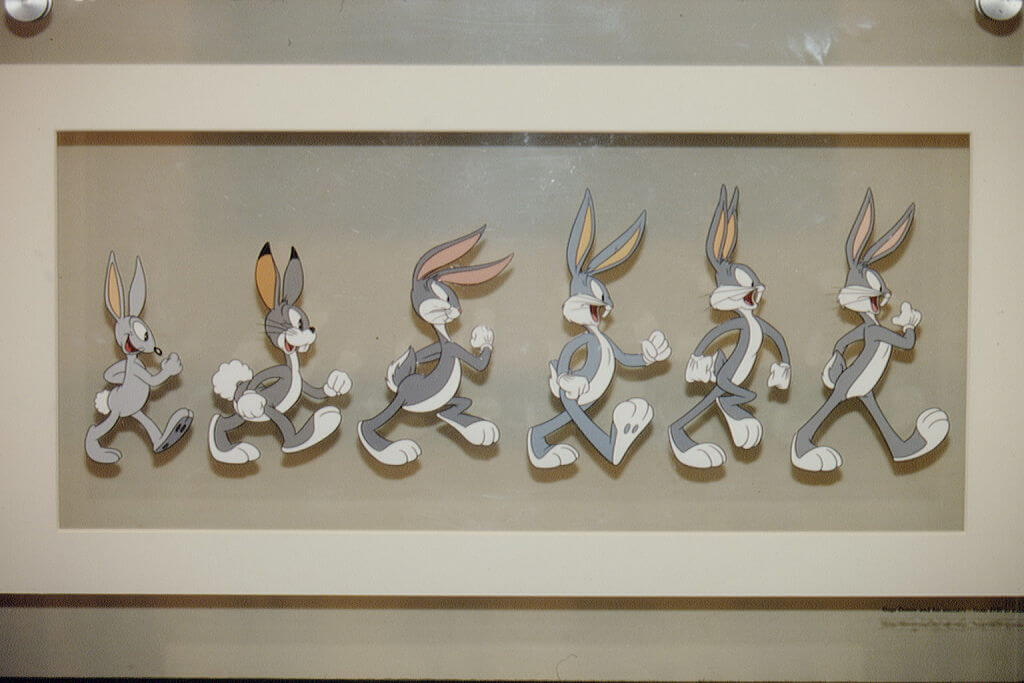
A Brooklyn Boy
Influential Name Change
Did you know that the show actually changed the meaning of the name “Nimrod?” You might know the word as meaning “stupid,” but before the show’s popularity, the name was known for its Biblical roots and the figure of Nimrod, who was a might hunter. Bugs would sarcastically call Elmer Fudd by the name, and so the association stuck. That’s how influential this show was!
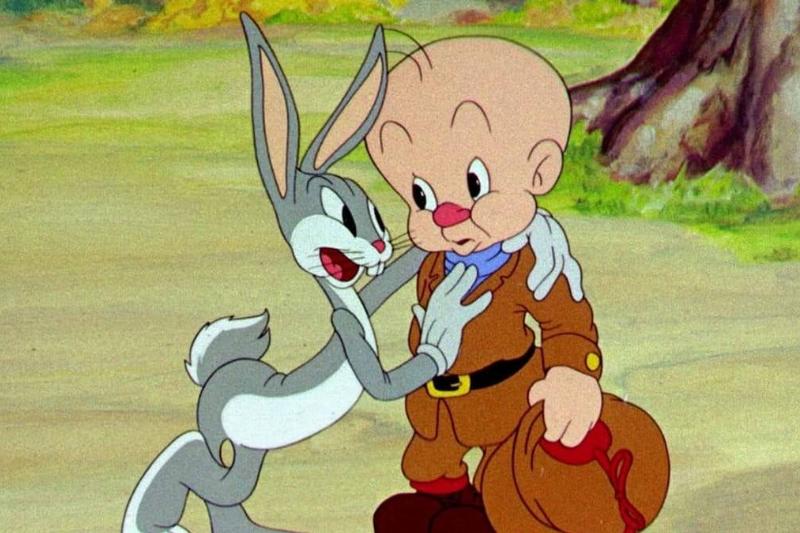
Influential Name Change
Saved Him From A Coma
Mel Blanc was the first to be the voice behind Bugs Bunny, giving him his signature fast-paced, Brooklyn accented voice. In 1961, Blanc was in a car accident that left him in a coma. Four weeks into his surgery, a surgeon jokingly asked “Bugs! Bugs Bunny! How are you doing today?” and to his shock, Blanc actually replied “Eee, what’s up Doc?” Amazingly, he continued working even while in the hospital.
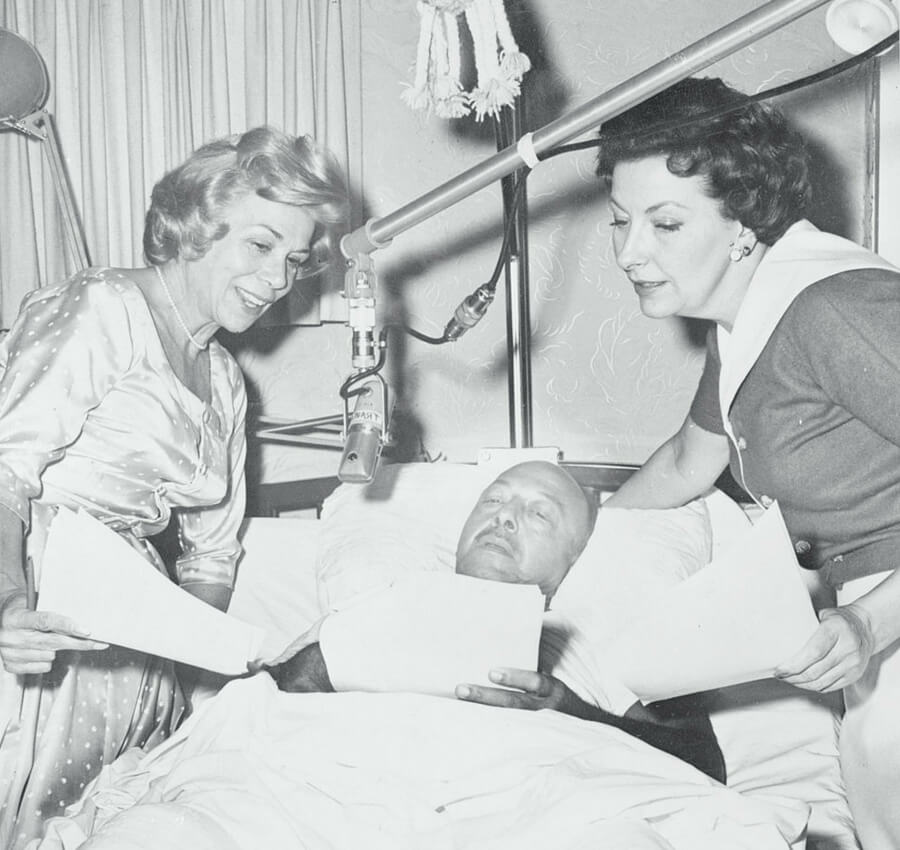
Saved Him From A Coma
Most Film Appearances
As of January 2013, Bugs Bunny is the cartoon character that has appeared in the most films and is also the 9th most portrayed film character worldwide. Up until then, he appeared in more than 160 animated Looney Tunes and Merrie Melodies short films. Most of us have seen him on the big screen in Space Jam from 1996.
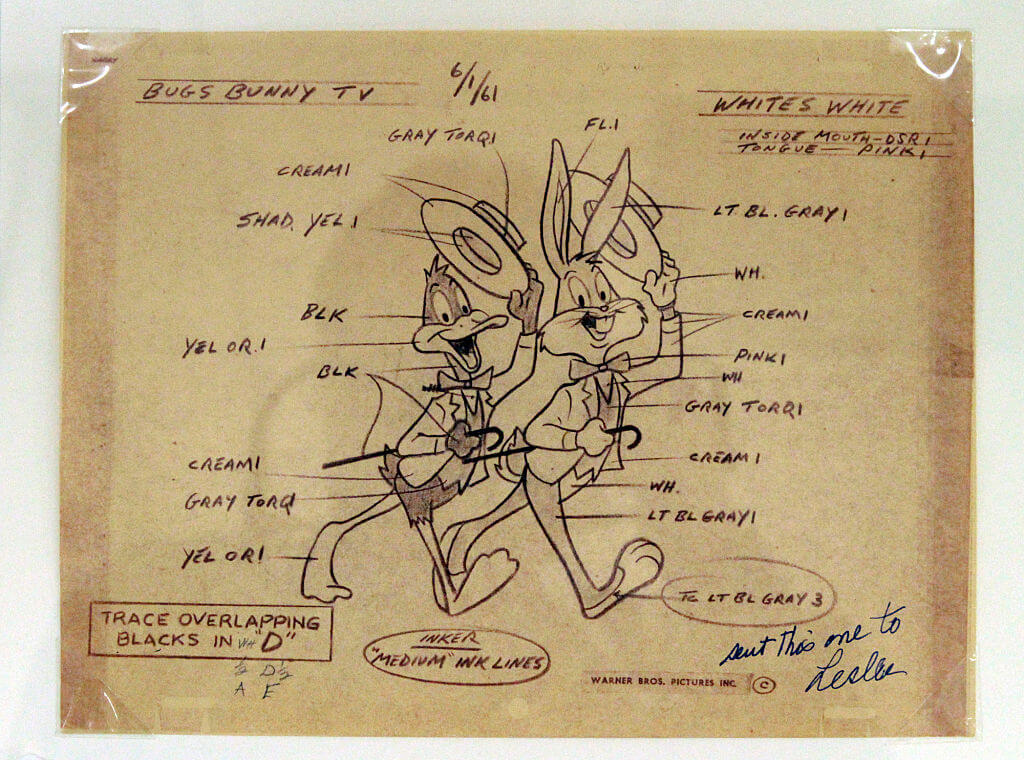
Most Film Appearances
Only “Lost” Four Times
While we know that Bugs never picks the fight, he tends to win them. He does lose to Cecil Turtle as they represent the Tortoise and the Hare from the famous Aesop fable. He also has only lost a fight to Elmer Fudd once, which can be seen in What’s Opera, Doc? which was Elmer Fudd’s final appearance in a Chuck Jones animation.
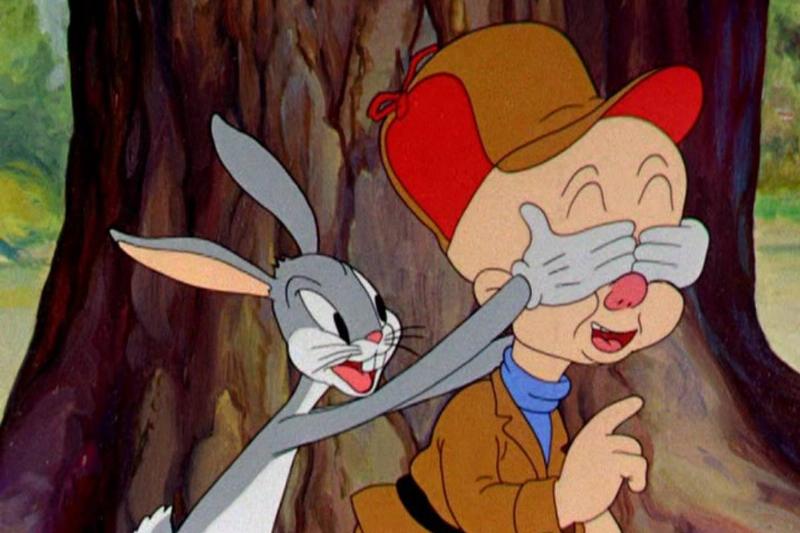
Only Lost Four Times
Inspired By Clark Gable
While Bugs Bunny’s mannerisms were inspired by many different actors, some of his best known quirks are his love for carrot munching as well as his slick talking. This was directly influenced by Clark Gable’s character in It Happened One Night, in which he plays a fast-talking city reporter, and in one scene can be seen leaning on a fence and eating a carrot. Look familiar?
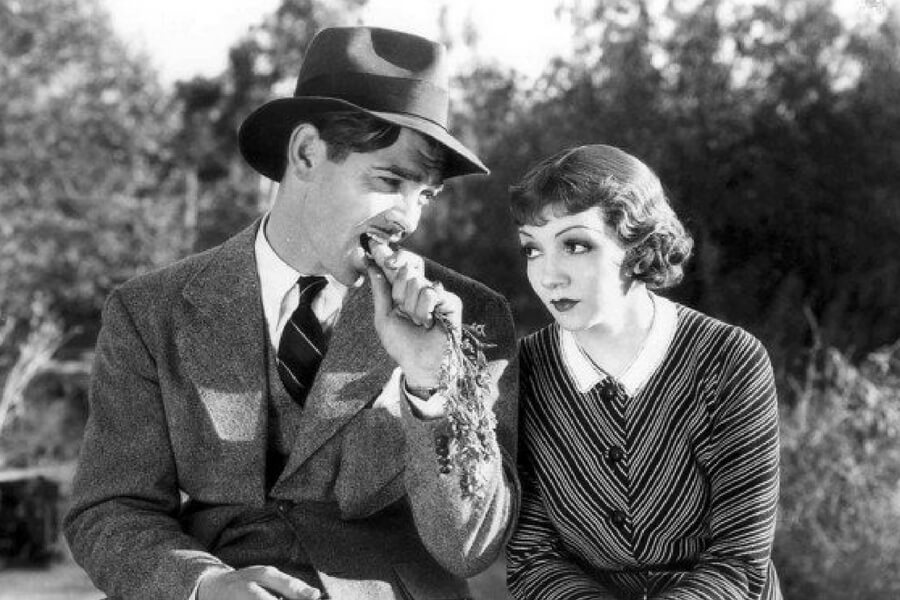
Inspired By Clark Gable
Walk of Fame Star
Bugs Bunny is one of only two cartoon characters to have their very one stars on the Hollywood Walk of Fame. Bugs was awarded his star in 1985, seven years after fellow cartoon animal Mickey Mouse got his. There are 17 fictional characters total that have stars on the famous boulevard, but he is the only Warner Bros. character to have this honor.
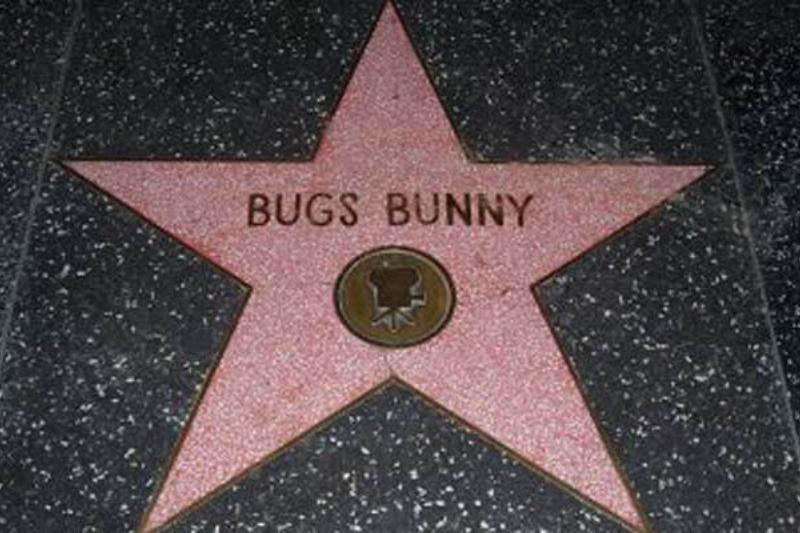
Walk Of Fame Star
Honorary Marine
In Super Rabbit, which was released as one of many WWII propaganda short animations, we see Bugs dressed in what appears to be the blue uniform of the US Marines. In response, the Marines appointed him to be an honorary Marine Master Sergeant. He then became the mascot of a few Marines divisions, including the Kingman Army Airfield.
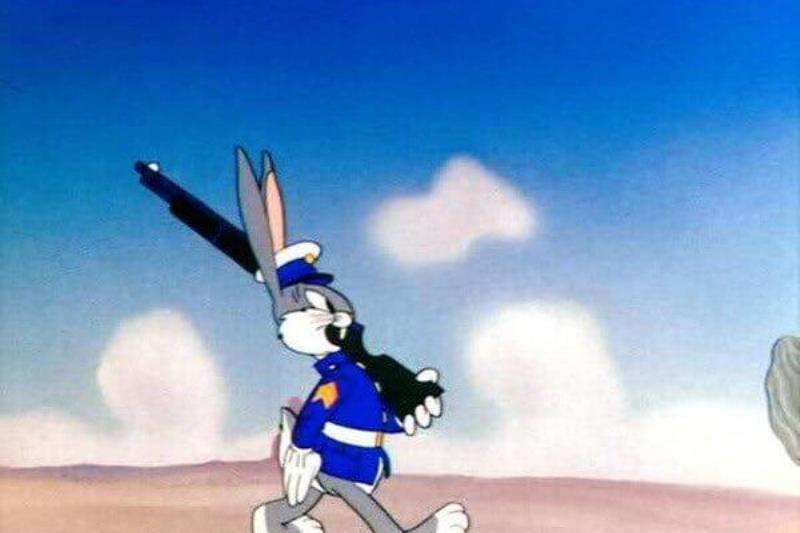
Honorary Marine
Eating Carrots While Recording
There was a rumor about Mel Blanc, who voiced Bugs, that he was allegedly allergic to carrots. This wasn’t true. In fact, in order to fully get into character he actually would eat carrots while recording in order to make the whole bit more realistic sounding.
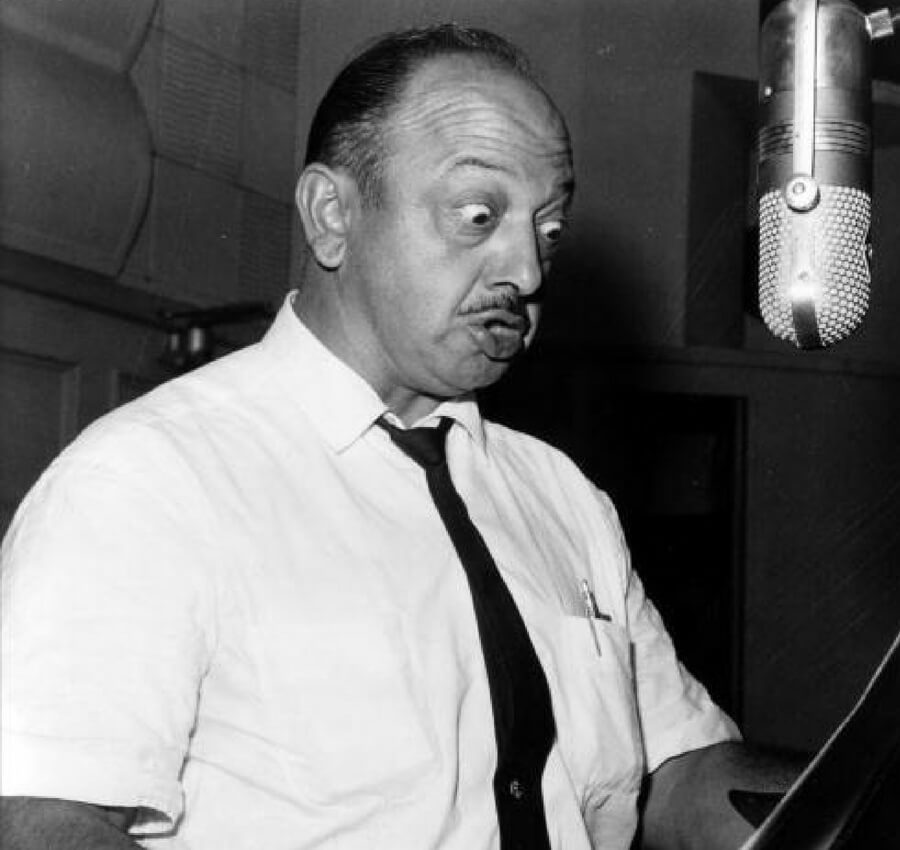
Eating Carrots While Recording
Rabbit, Not A Hare
Despite the fact that he appeared in A Wild Hare, he’s actually very much a rabbit. This is backed by the fact that he lives in a burrow and eats carrots, which hares do not do. However, the cartoon does use the terms interchangeably, because let’s face it, it’s a cartoon after all, so does it really matter?

Rabbit, Not A Hare
His Inspirations
Two more inspirations for Bugs’ character are Charlie Chaplin’s witty and goofy personality as well as Groucho Marx, whose line “of course you realize this means war!” was used by Bugs and became one of his catch phrases. The first time the line was used by Marx was in Duck Soup (1933) and then again in A Night at the Opera (1935).
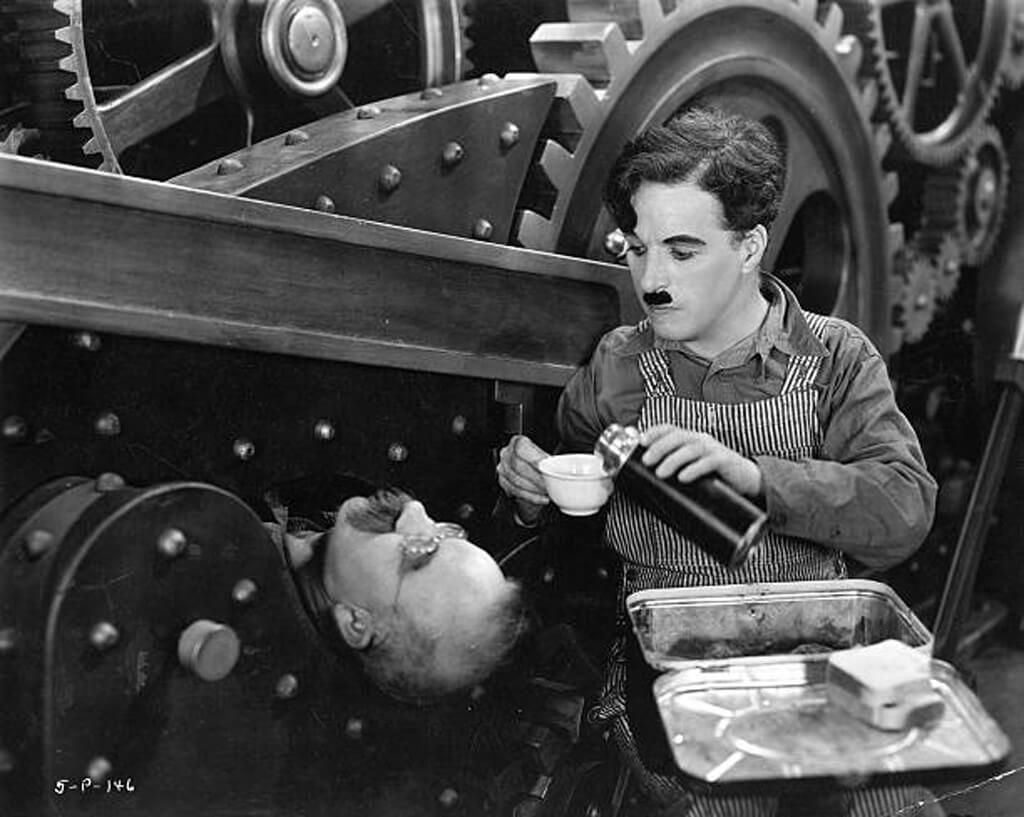
His Inspirations
Made It On A Stamp
While Mickey Mouse was the first cartoon character who was awarded a Hollywood Walk of Fame, Bugs was the first to make it onto a US Postal Service stamp, which was released in 1997. It was actually quite controversial because people thought the stamp was too “commercialized.” Also, a lot of Mickey fans felt that he deserved a stamp first.
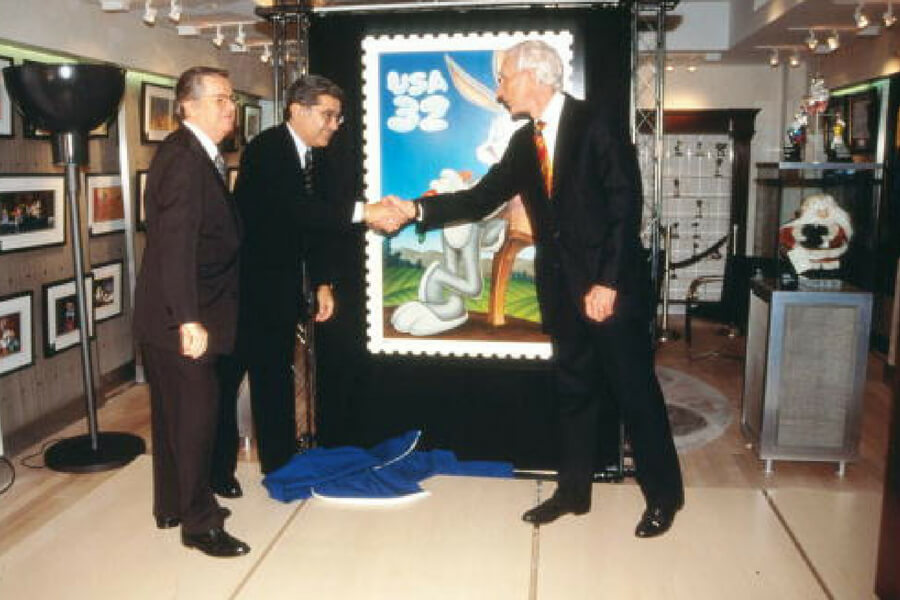
Made It On A Stamp
Bug Bunny World
For those who want to meet Bugs in person, head over to Six Flags Magic Mountain, located in California, as it is home to an entire Bugs Bunny World. The park hosted a huge star-studded party in 1999 in order to raise funds for Comic Relief and The Comprehensive Diabetes Center at the Children’s Hospital in Los Angeles.
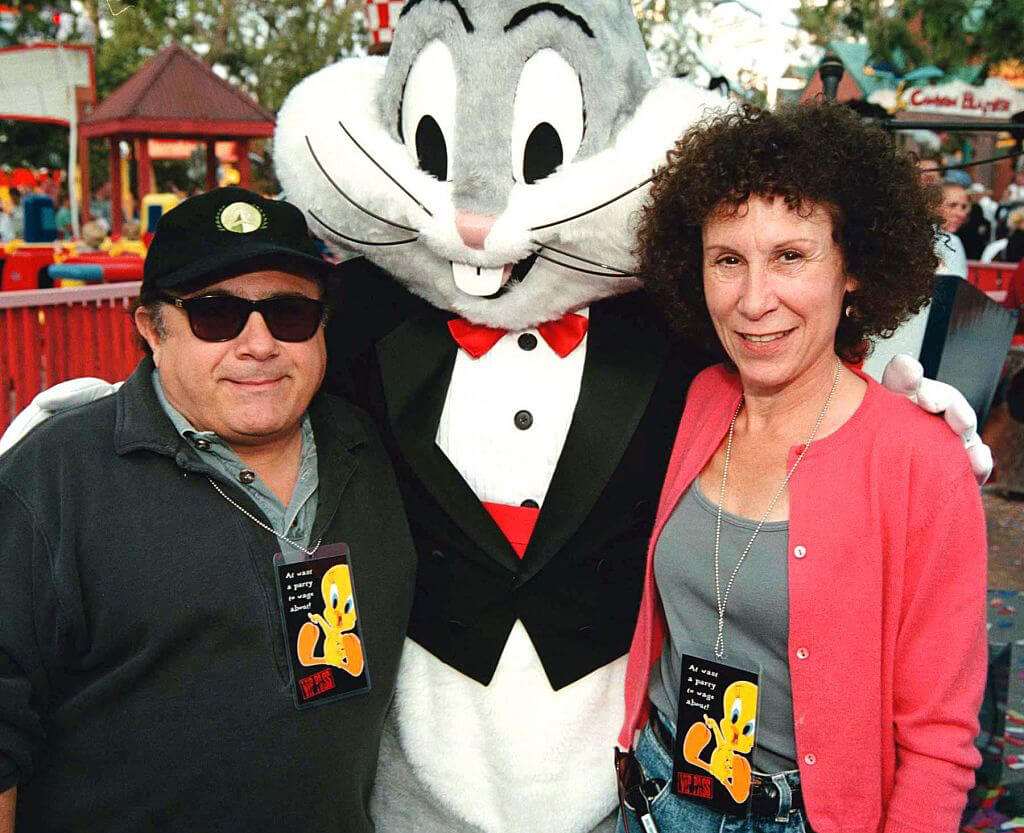
Bug Bunny World
Officially A Senior Citizen
On July 27th, 2015, Bugs Bunny turned 75, marking a quarter of a century since his first appearance in Wild Hare. Despite the huge milestone, there was no official celebration from Warner Bros. In July 2020, he officially turned 80.
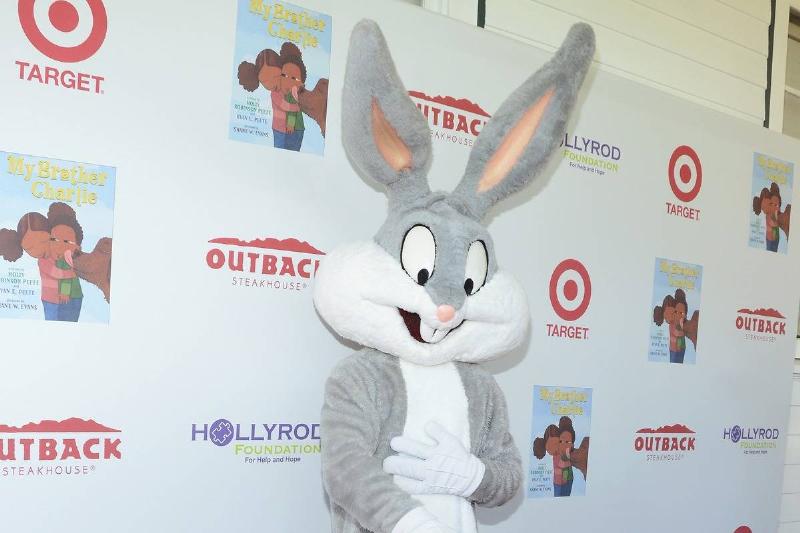
Officially A Senior Citizen
A Popular Attraction
Bugs Bunny has remained a popular fixture at Six Flags Magic Mountain. Even Justin Bieber was excited to meet him and Daffy Duck back in 2008. Other Looney Tunes characters featured at the park are Tweety Bird, Yosemite Sam, and Speedy Gonzales. Bugs Bunny World opened its 19th roller coaster in 2014. That’s a lot of roller coasters!
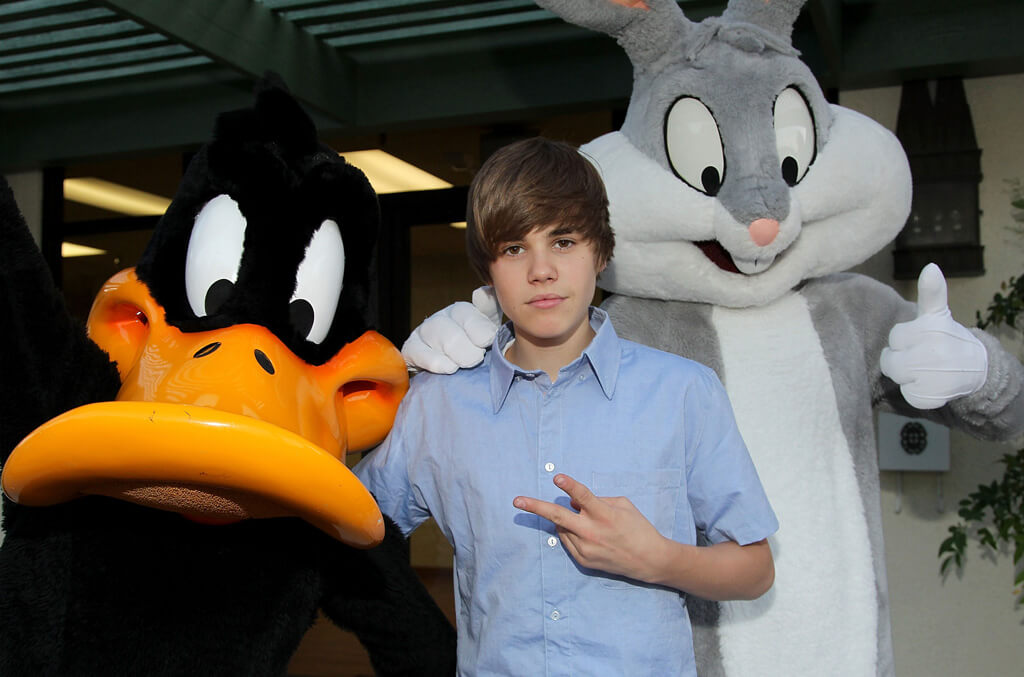
A Popular Attraction
A Big Honor
In 2002, Bugs Bunny was named the #1 cartoon character of all time by TV Guide. The editor said: “His stock…has never gone down…Bugs is the best example…of the smart-aleck American comic. [Bugs] not only is a great cartoon character, he’s a great comedian. He was written well. He was drawn beautifully. He has thrilled and made many generations laugh. He is tops.”
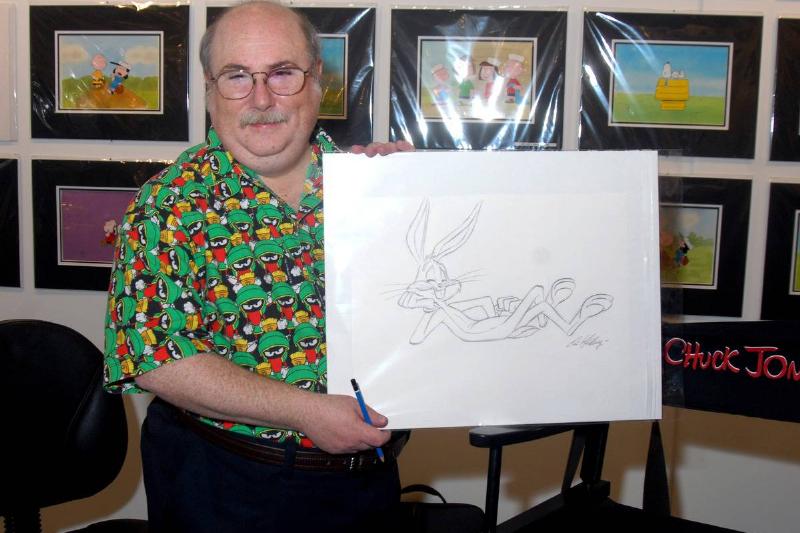
A Big Honor
After Mel
Mel Blanc was the first person to voice Bugs Bunny, but he certainly was not the last. After Blanc passed away in 1989, other voice actors chipped in to give Bugs Bunny a voice. These actors include Seth MacFarlane, Darrel Hammond, Dave Barry, Eric Bauza, Bill Farmer, Jeff Bergman, Joe Alaskey, Greg Burson, John Kassir, and Billy West.
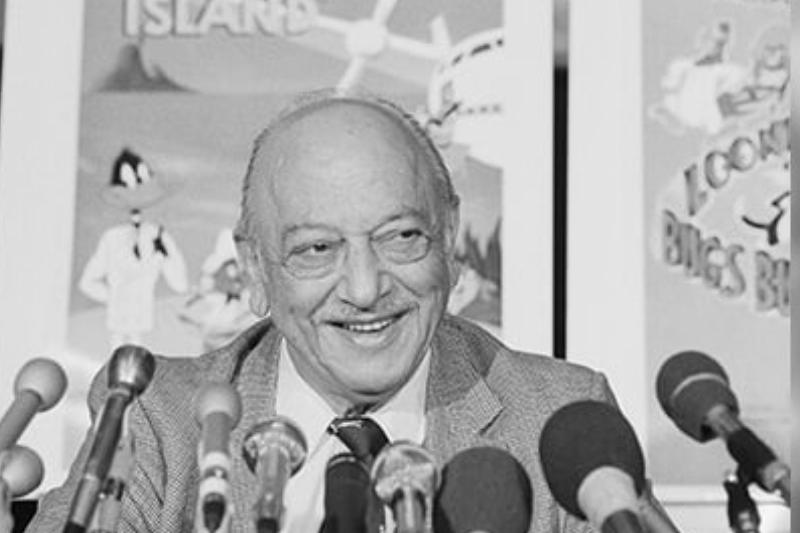
After Mel
Movie Star Bugs
In the 1996 film Space Jam, Billy West voiced Bugs Bunny. On this role, he told Vice that: “Space Jam was weird because everybody has their own perception of what Bugs Bunny should sound like. Everybody. Somebody would just stick their head in the door and say, ‘He sounds too Jewish.’ Or, ‘He’s too tough, he’s off-putting. You gotta seduce kids, not scare them out the door.'”
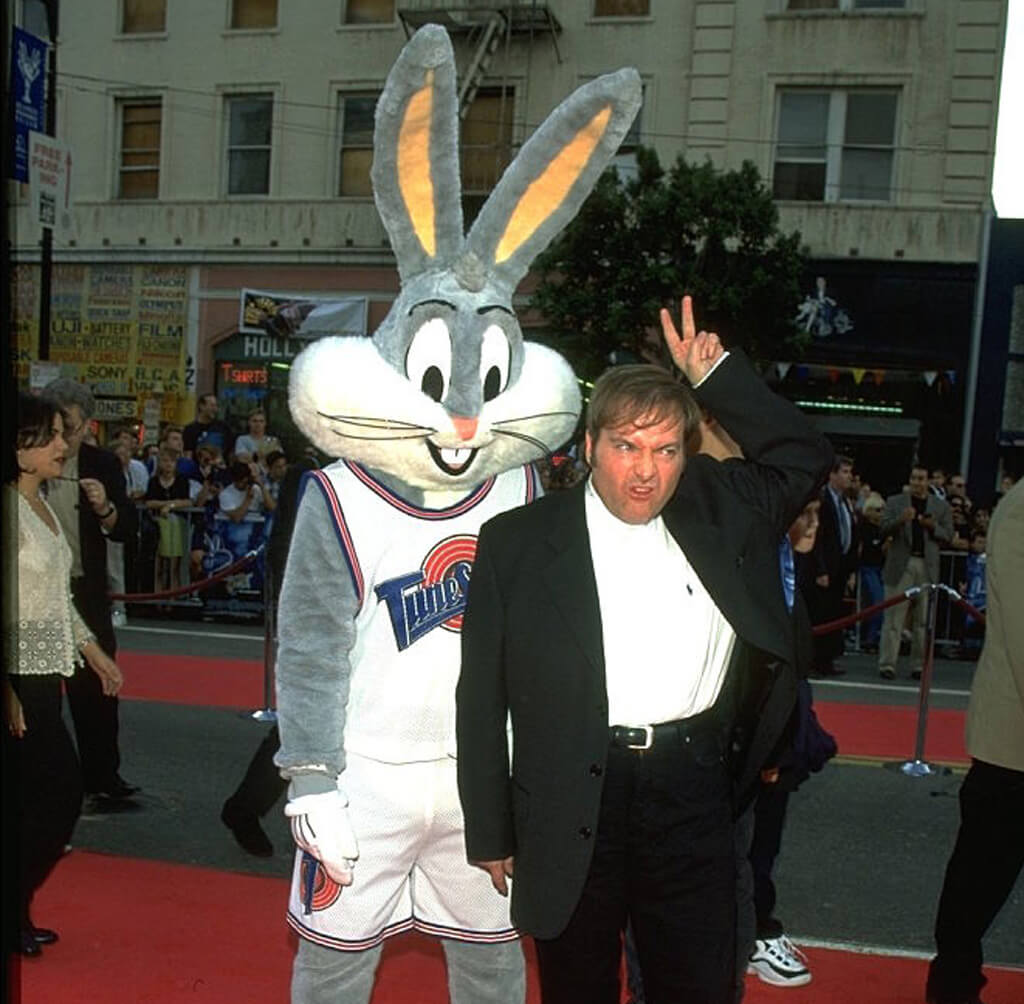
Movie Star Bugs
Street Art
A lot of Looney Tunes characters inspire plenty of street art around the world. Bugs Bunny is very popular in graffiti found worldwide, but so are the Tasmanian Devil and many more. This image was taken in Paris in April 2018, proving the continuing popularity and influence that Bugs has in popular culture.
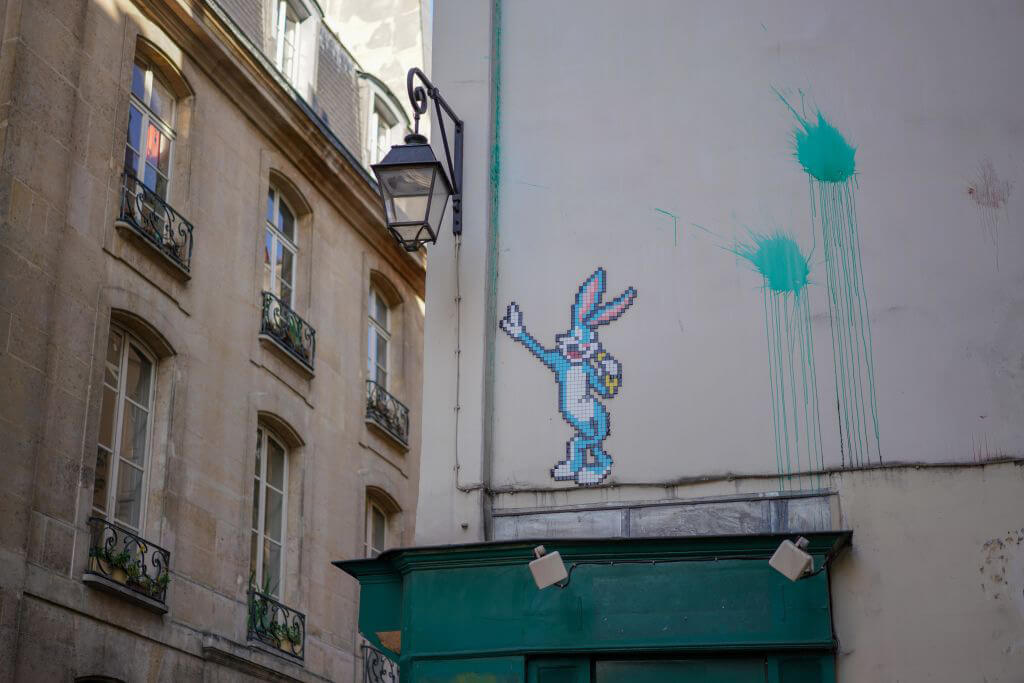
Street Art
Bugs The Conductor
The Los Angeles Philharmonic held an event in 2015 called the “Bugs Bunny at the Symphony II,” with his image projected onto a screen behind the orchestra. This show payed homage to Bugs having portrayed a conductor so many times on screen.
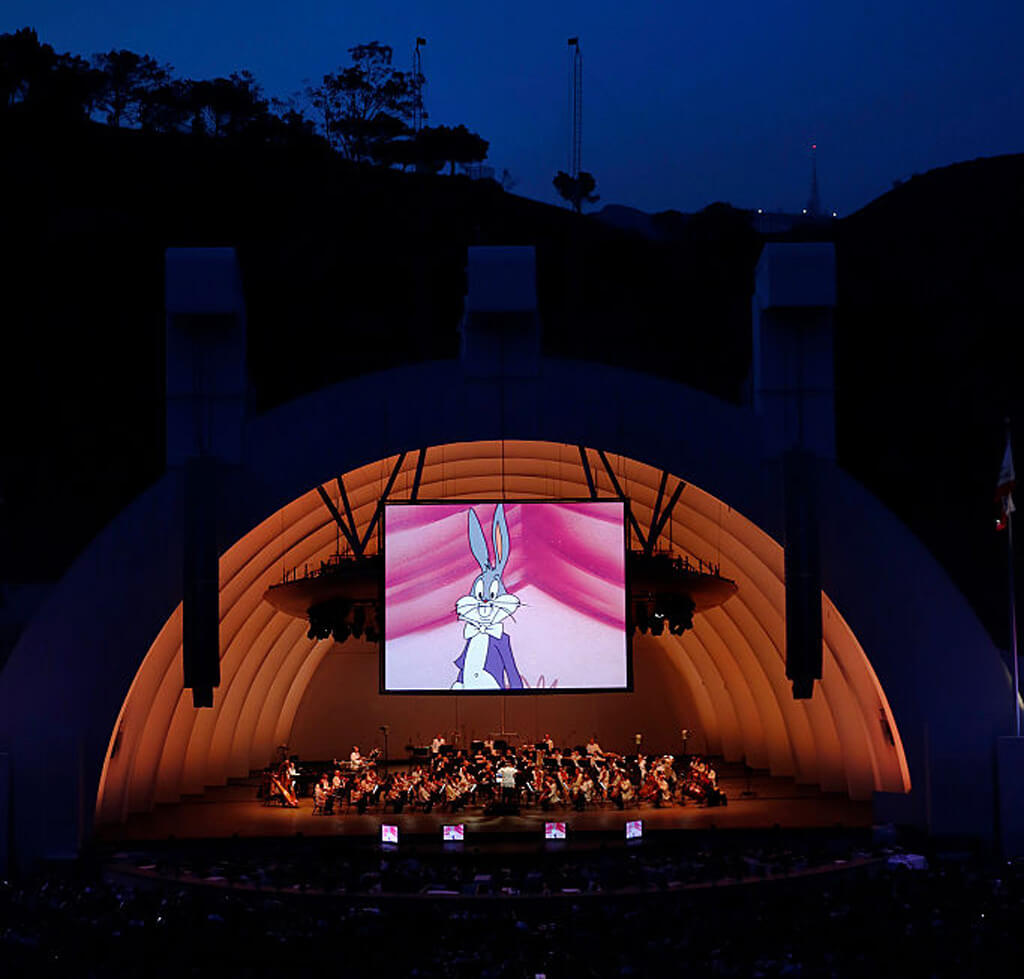
Bugs The Conductor
A Prolific Career
Chuck Jones is best known for his work on Looney Tunes and Merrie Melodies for many years. He is credited with working on over 300 titles and earned three Oscars throughout his career. In 1996, he received a Lifetime Achievement Oscar award.
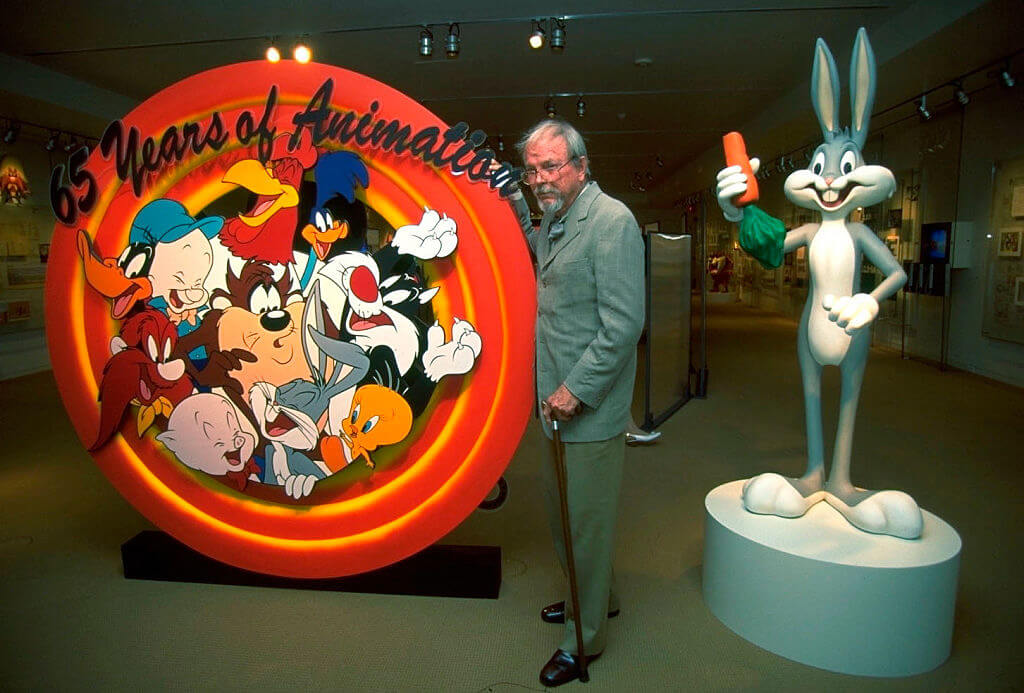
A Prolific Career
Chuck Jones Experience
In 2012, Circus Circus Las Vegas held an exhibit that honored Chuck Jones’ artwork throughout the years. Visitors could take photos with some of his most iconic characters. The exhibit was described as “an offshoot of the Chuck Jones Center for Creativity in Orange County, California.”
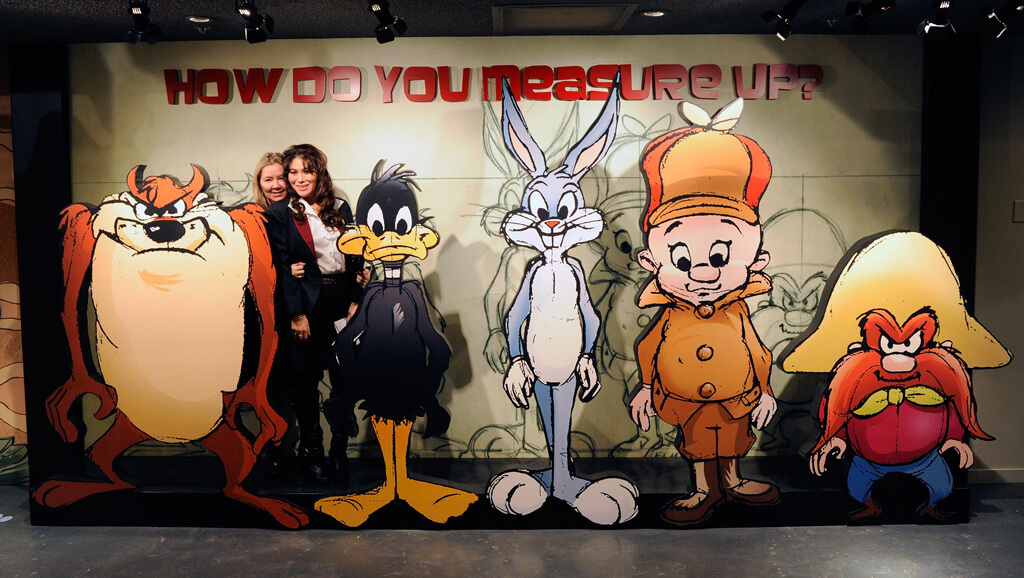
Chuck Jones Experience
Bob Givens’ Role
Working along with Chuck Jones and Tex Avery was Bob Givens, who was tasked with the job of re-designing Bugs to look “less cutesy.” He’s the one who created the Bugs Bunny look that we all know today. His design was tweaked a bit by animator Robert McKimson.
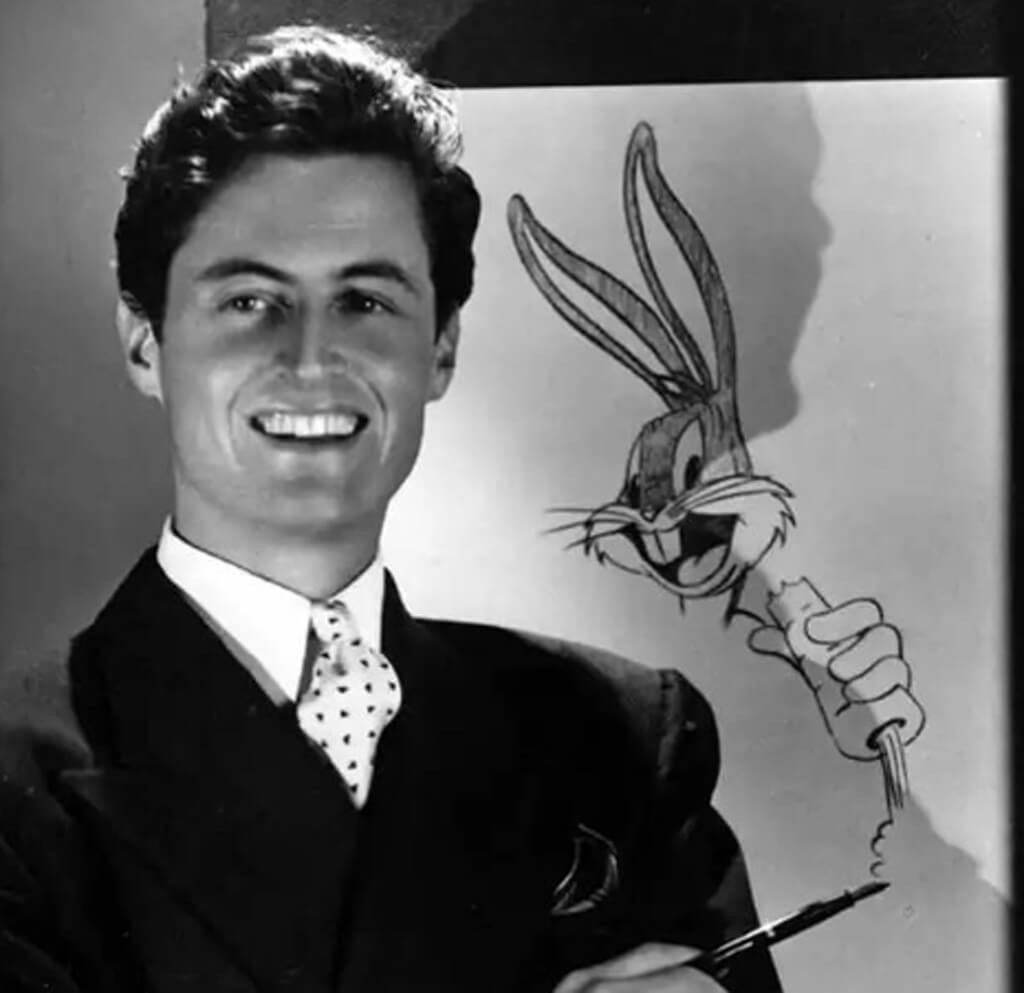
Bob Givens’ Role
His Long Career
Bob Givens’ career spanned over 60 years, and he worked at Warner Bros. as well as Disney and Hanna-Barbera studios. He also worked on the Disney classic animated film Snow White. He worked on the layout for shows Garfield and Friends. In December 2017, he passed away at age 99.
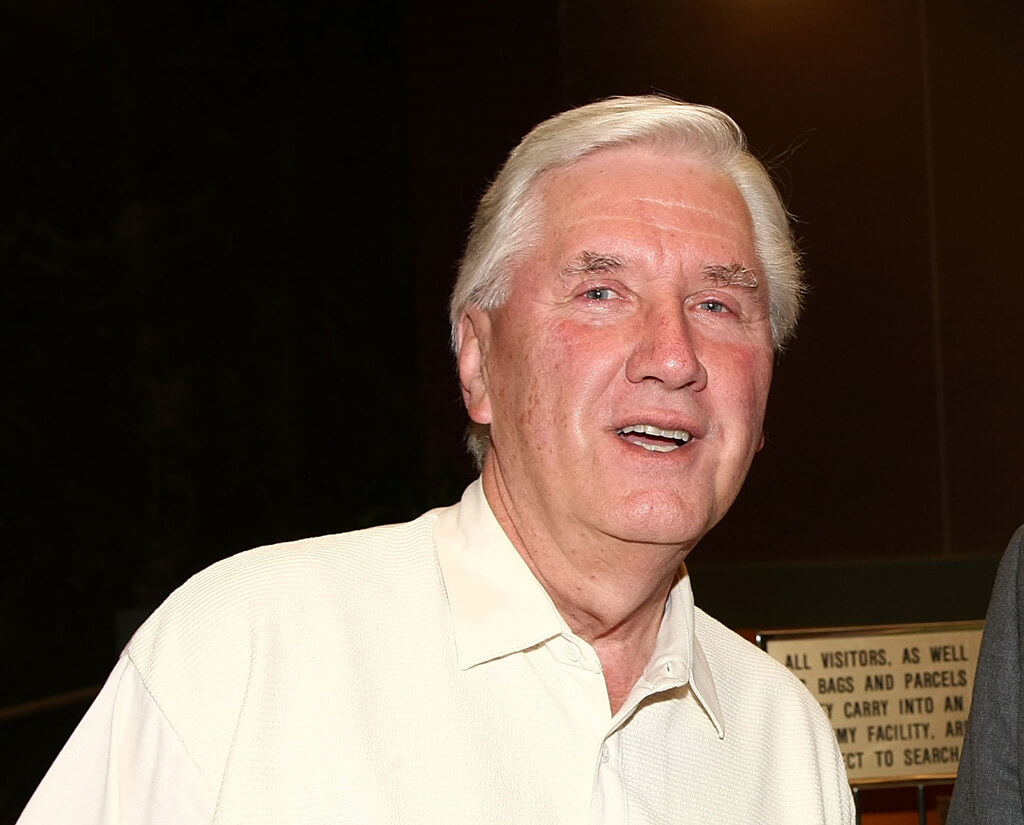
His Long Career
False Memory Studies
Did you know that Bugs Bunny was used in false memory studies? Test subjects were shown faked Disney World ads that showed Bugs Bunny. Since he is a Warner Bros. character, there’s no way the ads could have been real. However, some patients said that that they remember the advertisement, showing that they were exhibiting false memories. What’s up with that, doc?
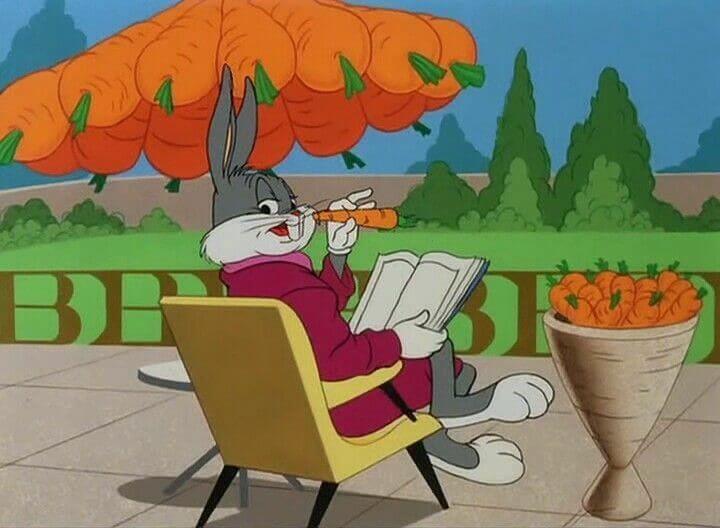
False Memory Studies
Back In Action
In 2003, Bugs Bunny starred in the live-action animation combo film Looney Tunes: Back in Action, which featured an ensemble cast with Steve Martin, Jenna Elfman, Joan Cusak, Brendan Fraser, and Heather Locklear. The film was the last one to be producted by Warner Bros. Feature Animation.
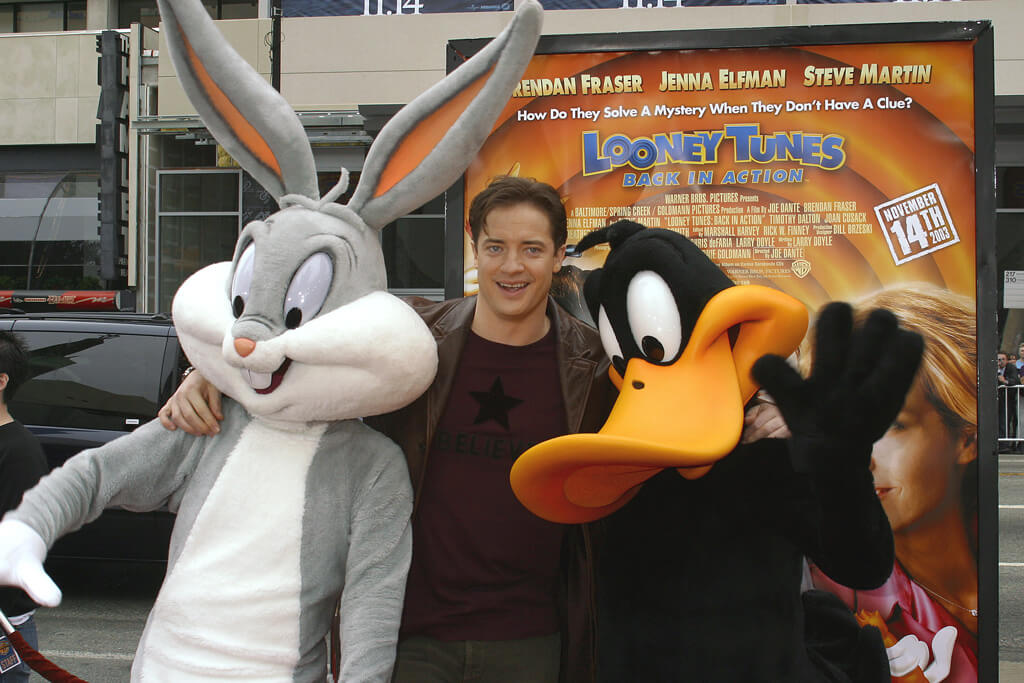
Back In Action
Longtime Voice Of Bugs
One of the voice actors to follow Mel Blanc’s footsteps as Bugs Bunny was Joe Alaskey, who also voiced the characters Tweety Bird, Elmer Fudd, and also some Rugrats characters. In 2004, he was awarded a Daytime Emmy Award for Outstanding Performer in an Animated Program for his work.
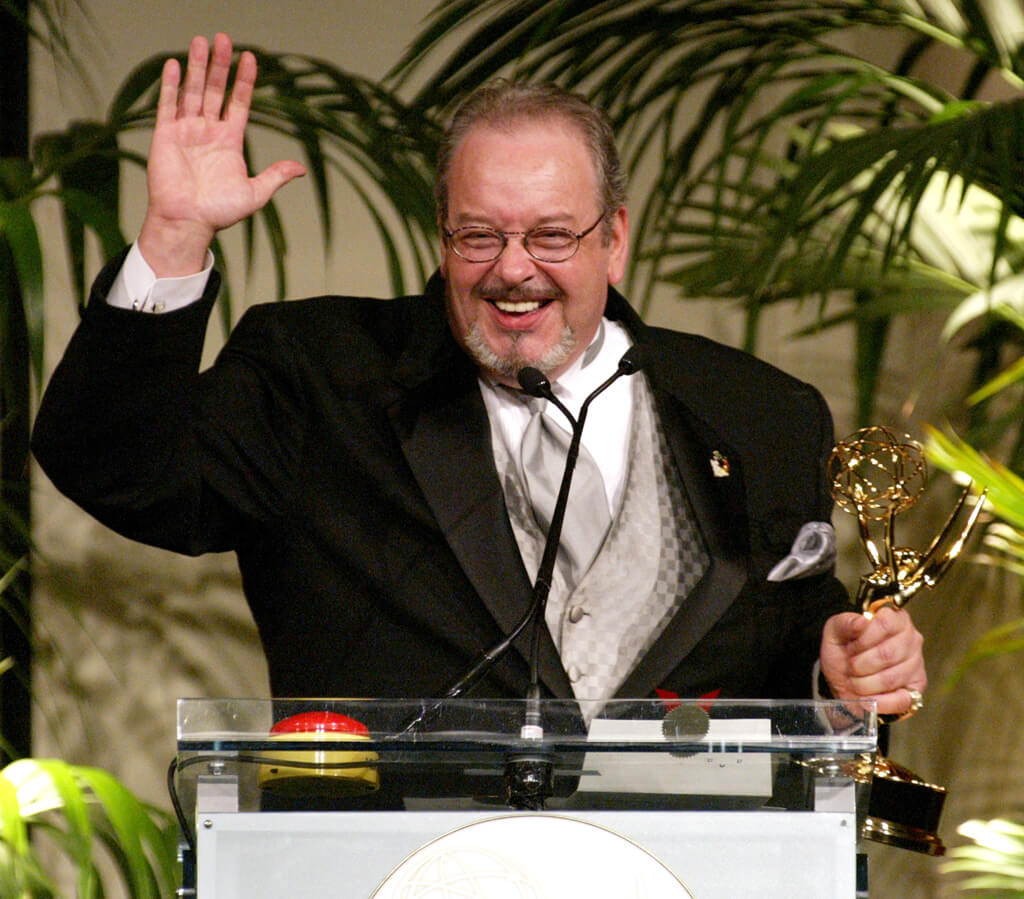
Longtime Voice Of Bugs
GPS Voice
For anyone with a TomTom navigation device, this is for you. You’re able to download Looney Tunes voice characters’ voices for the GPS. You can choose from Bugs Bunny, Daffy Duck, Pepe Le Pew, and Yosemite Sam. If you choose Bugs, you’ll be able to hear directions like: “Say doc, after 600 yards stay in the right lane. What’s this rabbit’s foot doin’ in the glove box?”
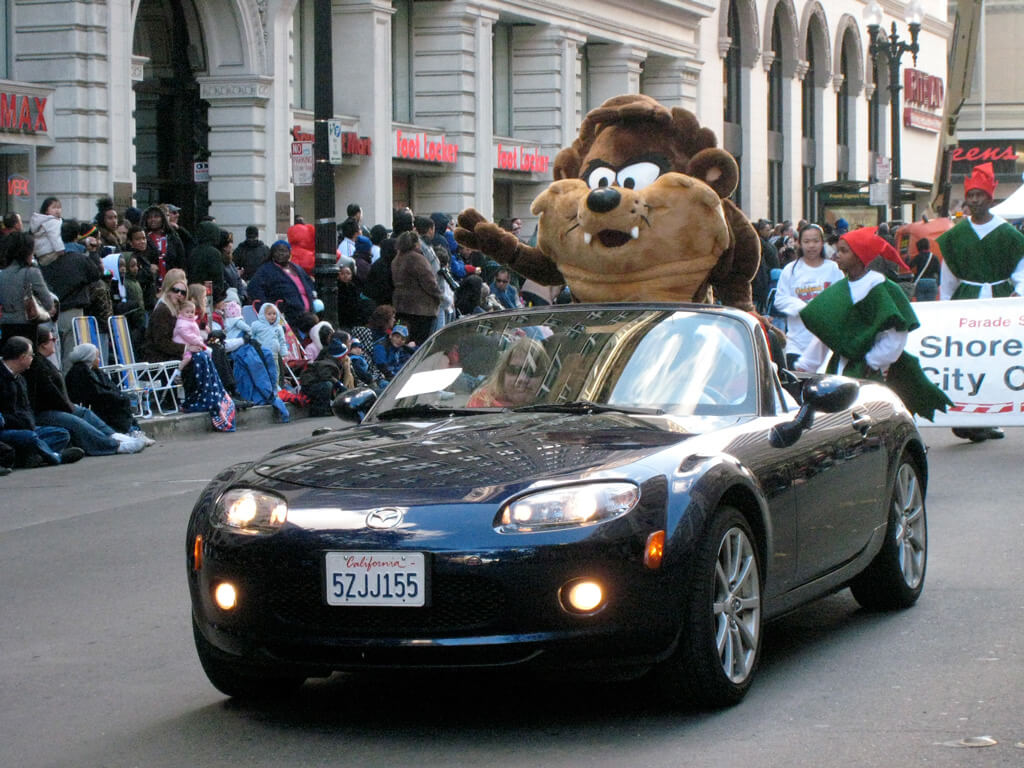
GPS Voice
Fans All Around
Bugs has countless fans everywhere, spanning across generations. New York Yankees shortstop Didi Gregorius has been seen wearing cleats featuring Bugs Bunny. He told MLB.com: “I like watching Bugs Bunny and especially Road Runner and the Coyote, because he’s always trying to get him. It’s always fun.”
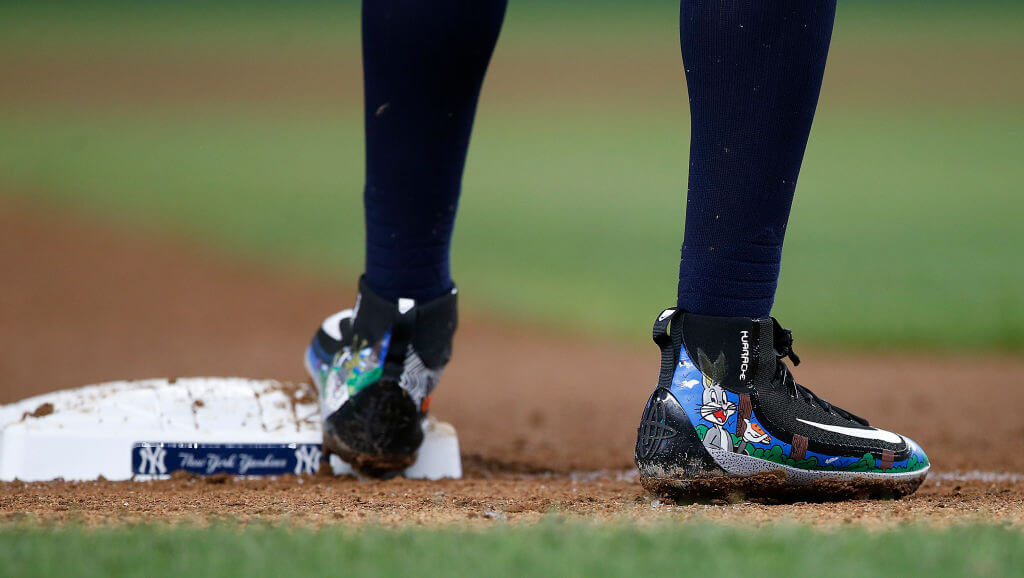
Fans All Around
Macy’s Thanksgiving Day Parade
In 1989, Bugs Bunny first appeared in the Macy’s Thanksgiving Day Parade, which coincided with the 50 year anniversary of the character. His float showed him eating his signature carrot. The song that played in the background was “The Merry-Go Round Broke Down.” This float was a fixture in the parade until 1992.
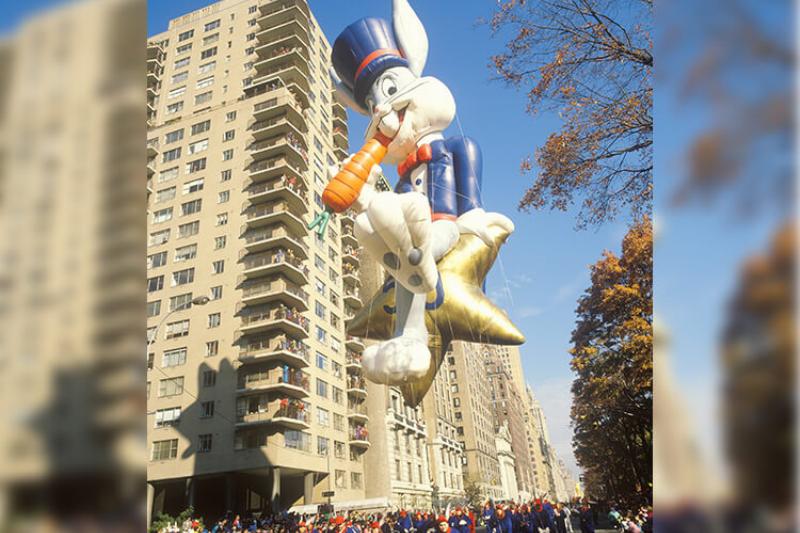
Macy’s Thanksgiving Day Parade
Many Video Games
The characters’ popularity can be seen by the fact that he appeared in many video games. These include: “Bugs Bunny Rabbit Rampage,” “Bugs Bunny Lost In Time,” “Crazy Castle,” “The Bugs Bunny Birthday Blowout,” and “Operation Carrot Patch.” Billy West voiced Bugs in most of these games.
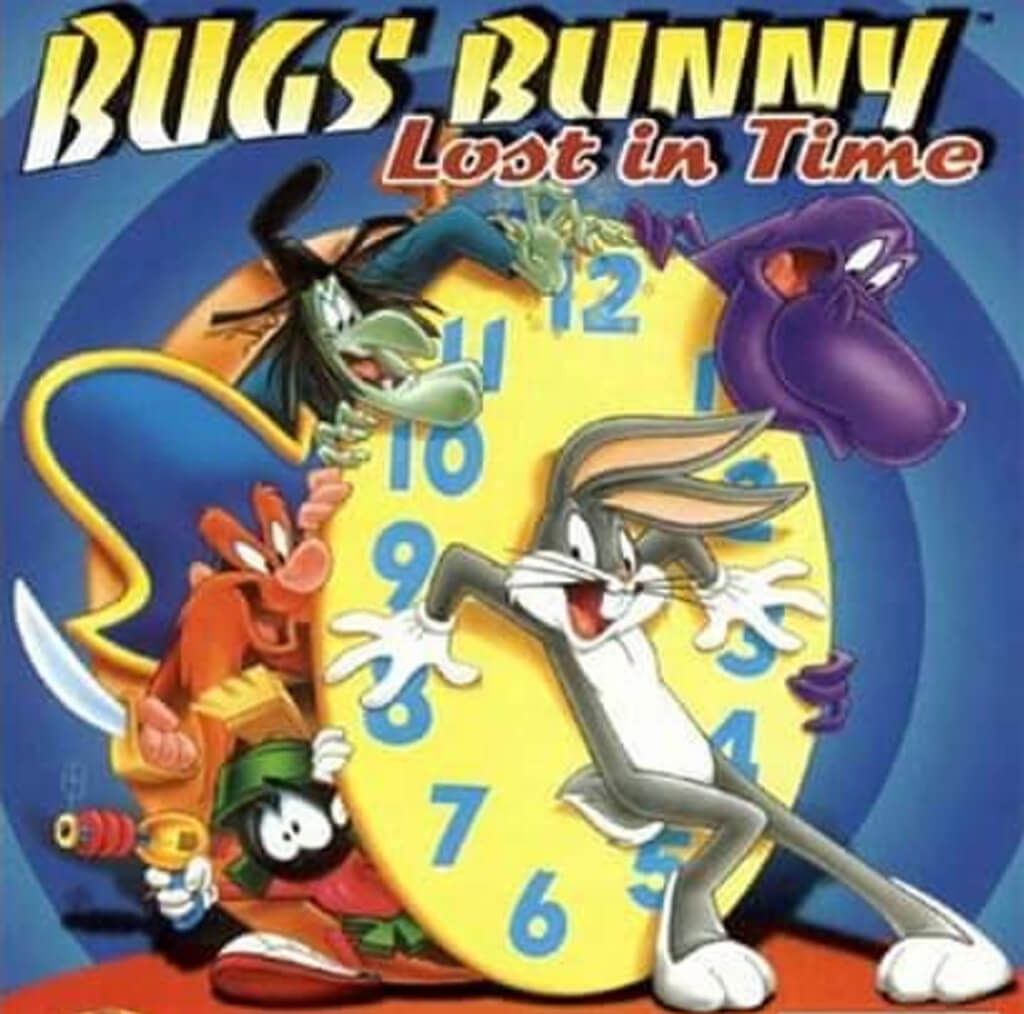
Many Video Games
Modern Art Bugs
In 2015, Korean sculptor Hyungkoo Lee created a series of cartoon characters’ skeletons, which is certainly a modern art take on the classic cartoons. Some of the characters that were included in the series are Bugs Bunny, Wile E. Coyote, The Road Runner, and Huey, Dewey, and Louie.
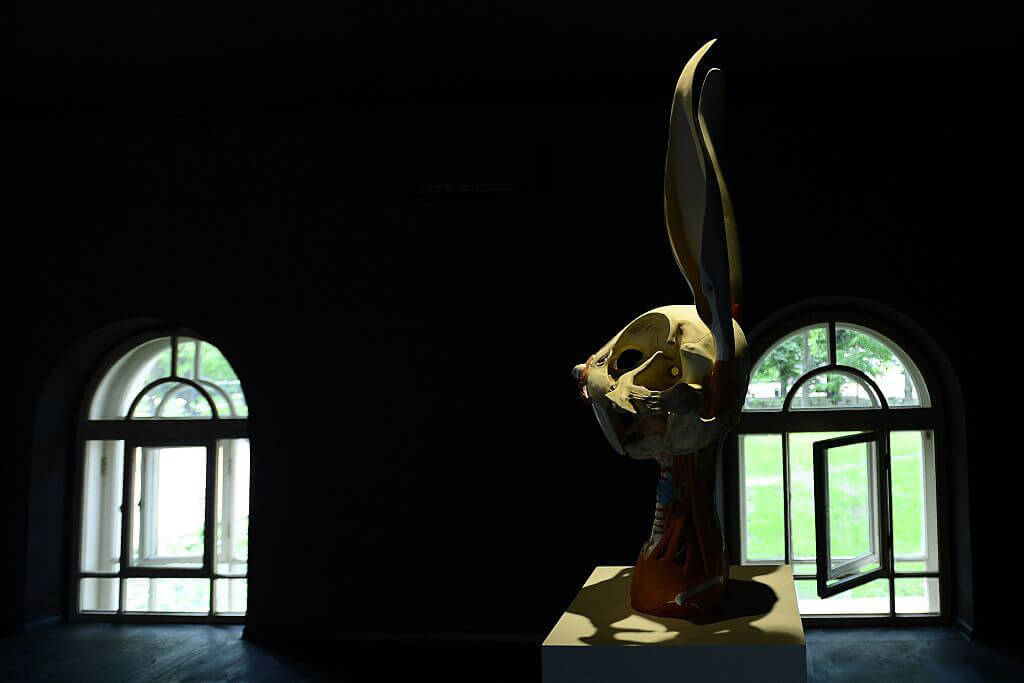
Modern Art Bugs
Lola Bunny
In the Looney Tunes Show that ran from 2011 until 2014, the character of Lola Bunny was featured, heavily pursuing Bugs to the point of even stalking him. Eventually, the two make amends and are even featured in a video game together called “Bugs Bunny & Lola Bunny: Operation Carrot Patch.”
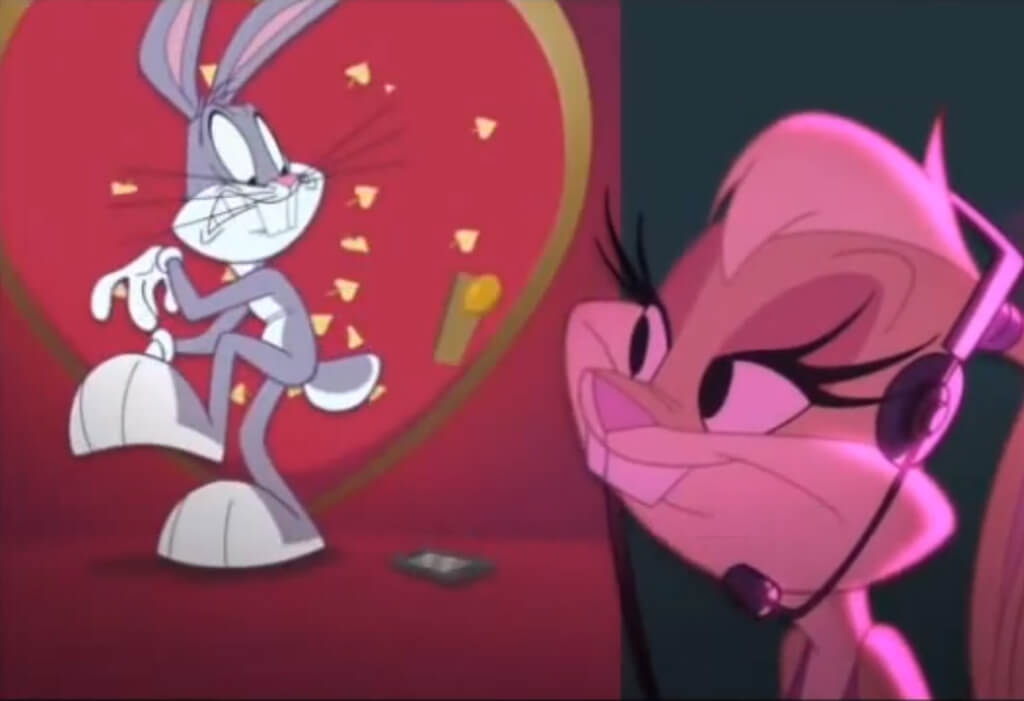
Lola Bunny
Not The Only Popular Cartoon
Bugs Bunny is not the only iconic cartoon character that originated from the same time period. In January 1929, Popeye the Sailor first appeared in a comic strip by E.C. Segar in a series called Thimble Theater. The memorable character eventually became the comic strip’s main fixture, and it was renamed Thimble Theater Starring Popeye, and then was later known as simply Popeye.
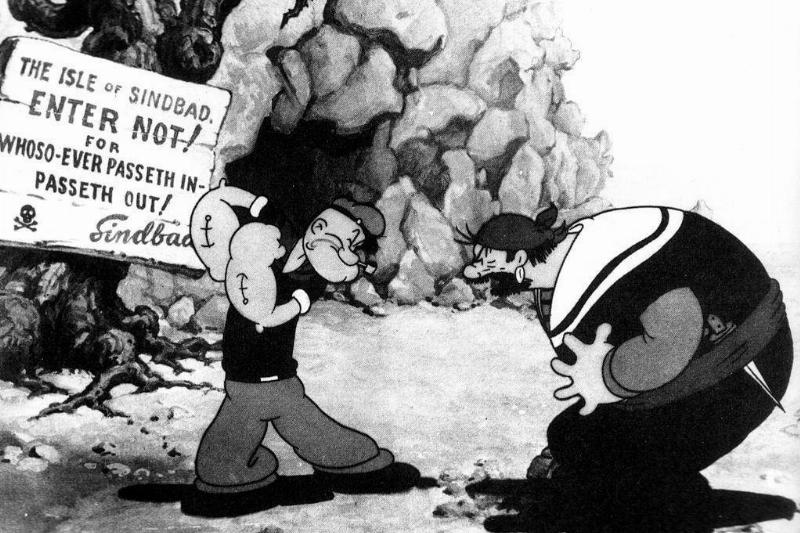
Not The Only Popular Cartoon
A Creative Signature
Popeye was created as a sidekick to the character Castor Oyl in order to help him navigate a ship towards Dice Island. Segar would often sign his work as “E. Segar” above a sketch of a cigar, so that they could easily know how to pronounce his last name.
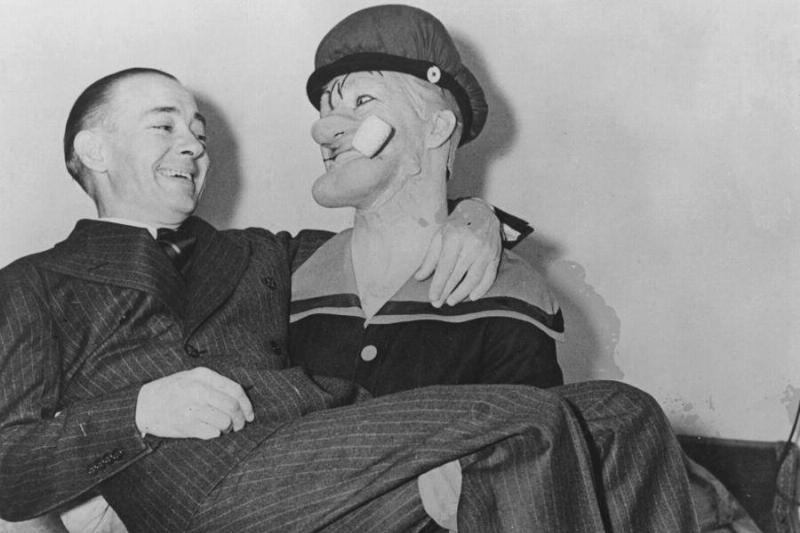
A Creative Signature
Robin Williams’ First Major Role
Did you know that Robin Williams’ first big screen appearance was the 1980 film Popeye. It earned $50 million, which is over double the film’s budget. The live-action film helped cement Popeye’s popularity as a character.
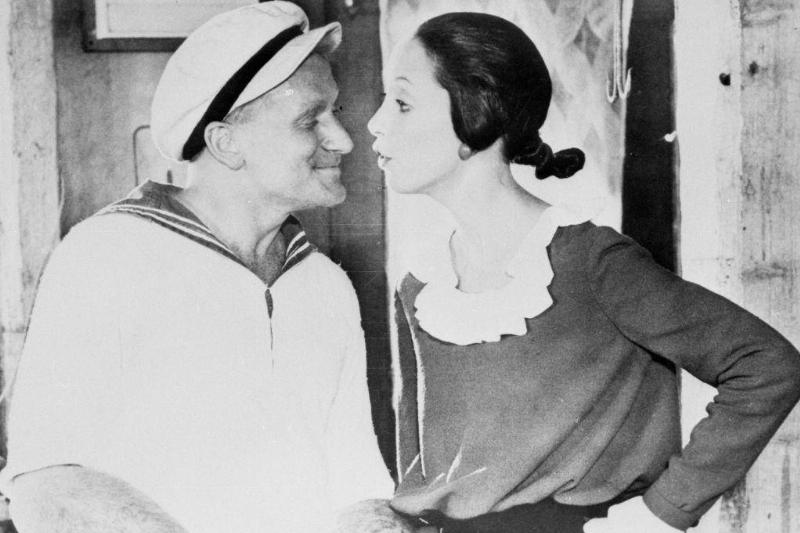
Robin Williams’ First Major Role
Introducing New Words To The World
One of the long-lasting impacts of the world of Popeye include the usage of the words “wimpy” and “doofus.” The character J. Wellington Wimpy was known to be timid and cowardly, so being called wimpy became a way to describe people like that. Meanwhile, the character of Dufus was very silly, explaining our use of the term.
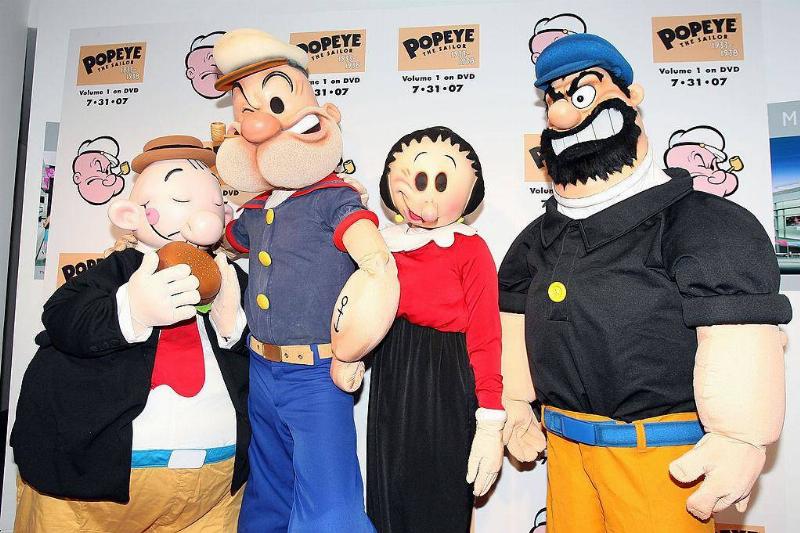
Introducing New Words To The World
Is That A Squint?
While in the comic book Popeye had one eye that he lost in a fight, in the cartoon, it’s unclear if he lost and eye or if he is just squinting. However, in one episode Bluto calls him a “one eyed runt” so perhaps he really was missing an eye in the cartoon as well.
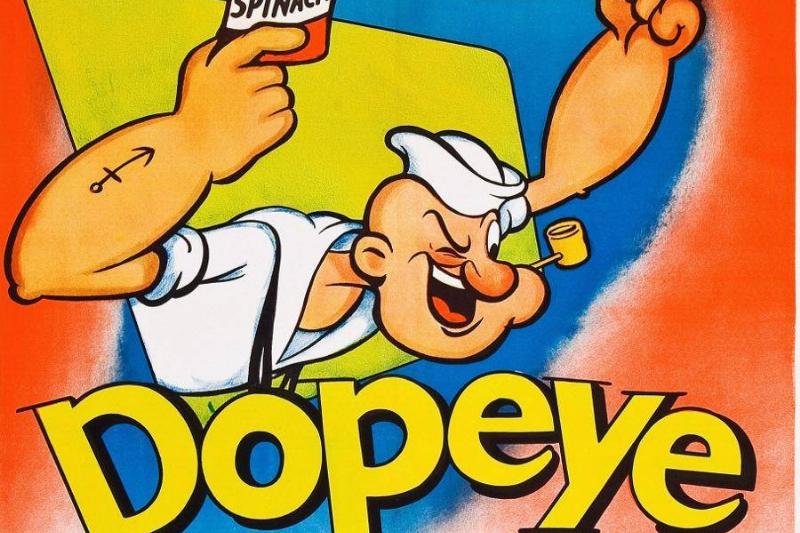
Is That A Squint?
Real Life Inspiration
Popeye was inspired by boxer Frank “Rocky” Fiegel, who also smoked a pipe, had a strong chin, and was keen on fighting. In fact, the International Popeye Fan Club put a headstone of Fiegel’s unmarked grave in 1996. However, Fiegel was not a sailor.
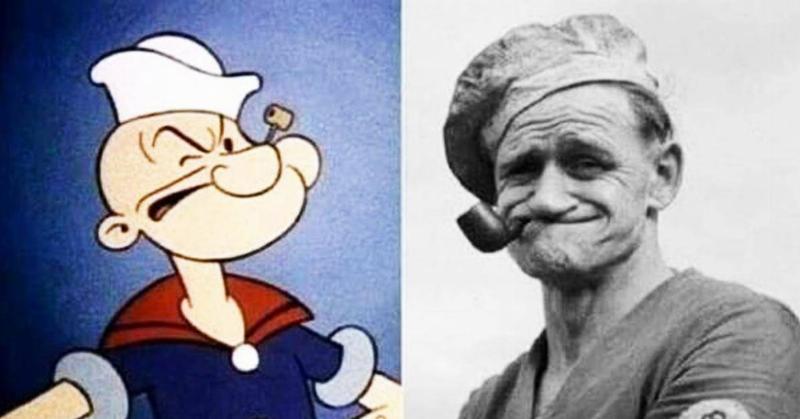
Real Life Inspiration
She Didn’t Initially Like Him
At first, Olive Oyl was with Harold Hamgravy, and their adventures were chronicles in Thimble Theater. When Popeye took off, Olive Oil was introduced to his world. However, she didn’t immediately like him, in fact the first thing she said to him was: “Take your hooks offa me or I’ll lay ya in a scupper.”
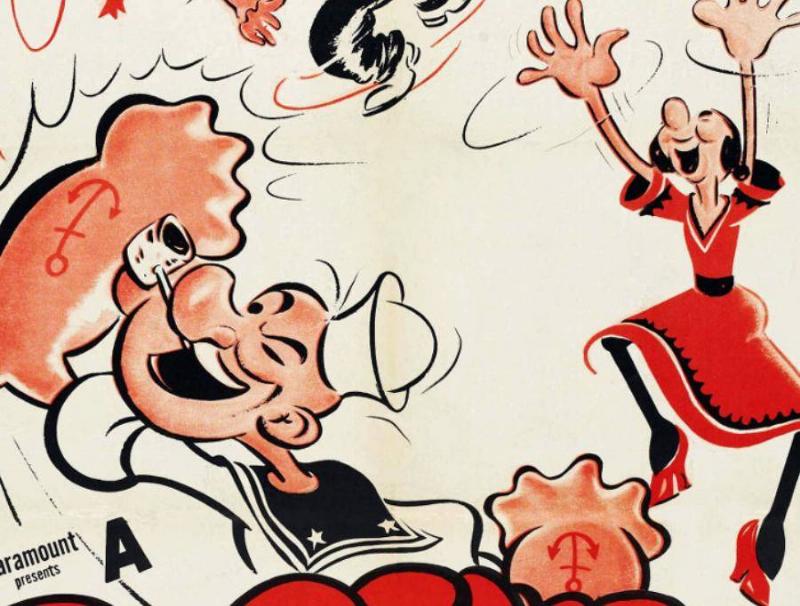
She Didn’t Initially Like Him
The Jeep Name
The Jeep was Popeye’s pet that first appeared in the comic strip in 1936, and was known for his magical ability to travel to anywhere he wanted to. There’s a theory that American soldiers loved their off road vehicles so much that they affectionately called them “Jeep.” This could be the source of the name of the popular car.
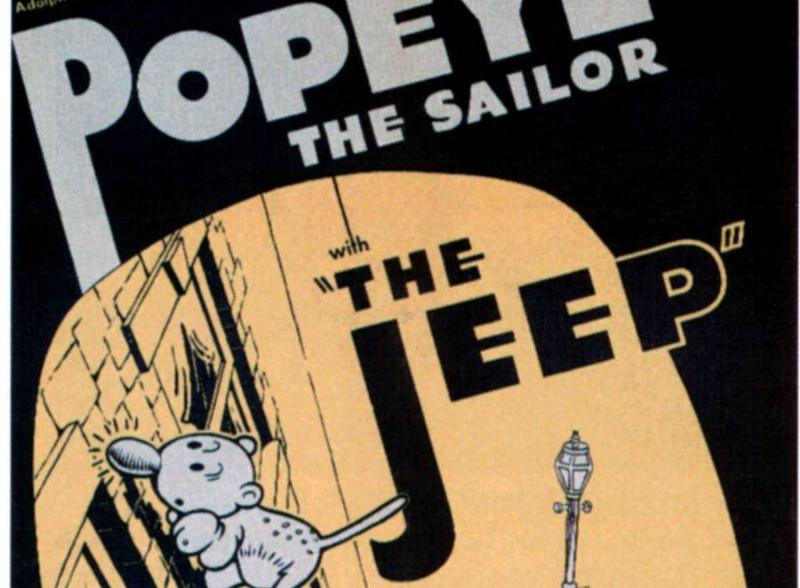
The Jeep Name
The First Statue Of A Cartoon
Popeye became the first cartoon character to have a statue of him erected, which is located in Crystal City, Texas. There are spinach farms all around the town, so it makes sense that the chose to honor Popeye.
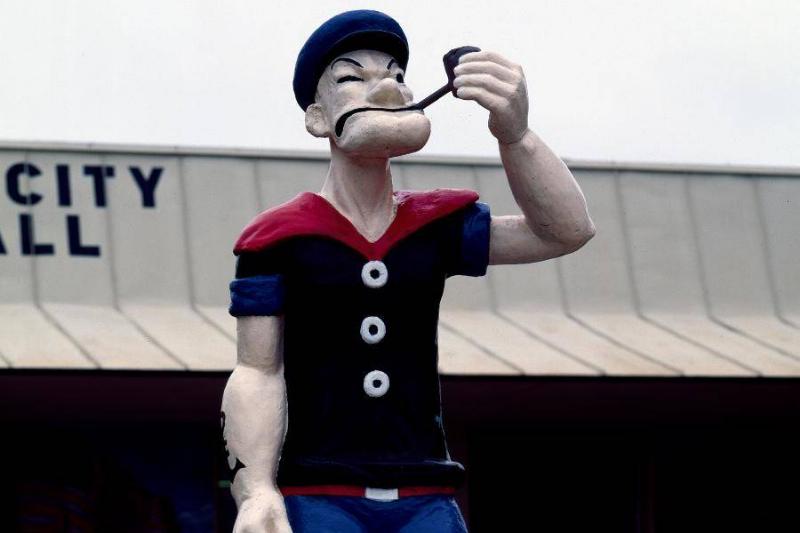
The First Statue Of A Cartoon
The Quakers Opposed
In the 1980’s, Popeye began to be featured in Quaker Oatmeals ads, where he was seen fighting off villains after eating their oatmeal. The Quaker religious group took offense to his line in the ad, which was: “I’m Popeye the Quaker Man!” The Quakers didn’t want to be associated with any depictions of fighting.
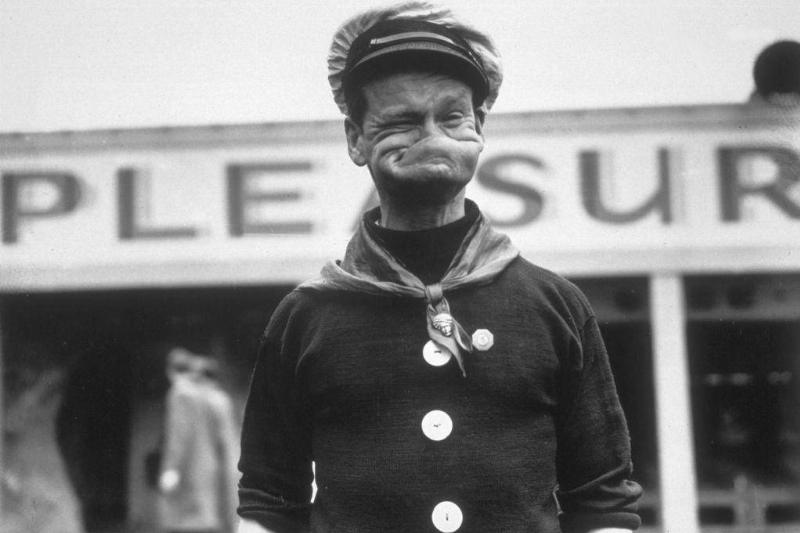
The Quakers Opposed
He Gave Him A Voice
At first, Popeye was voiced by Billy Costello, who was allegedly fired due to being difficult to work with. He was then replaced by Jack Mercer, who was an apprentice animator who was overheard impersonating Popeye by the head of Fleischer Studios’ music department. Mercer is said to be the best voice behind the character.
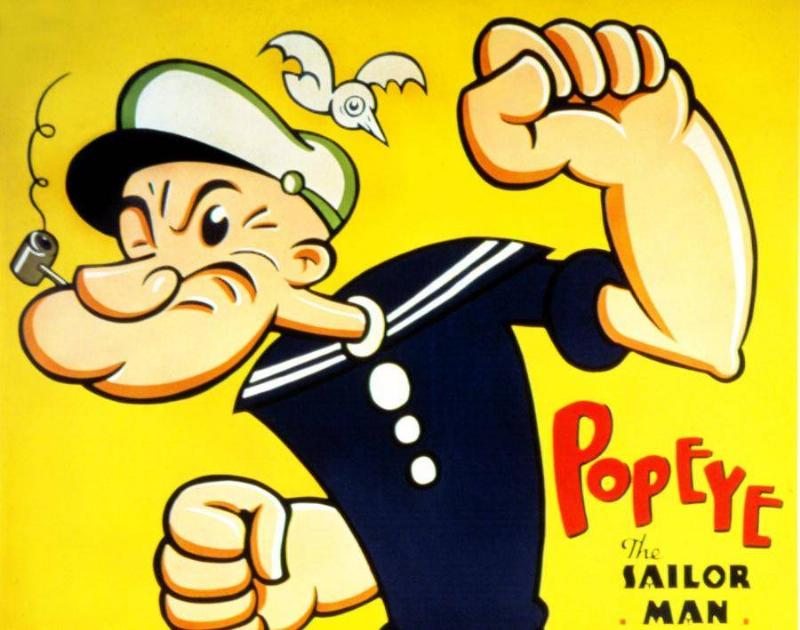
He Gave Him A Voice
They Got Married In Real Life
Jack Mercer, who voiced Popeye, ended up marrying Margie Hines, who voiced Olive Oyl. It’s amazing that the people who voiced the characters who were together ended up together in real life! Unfortunately, they ended up getting a divorce in 1944.
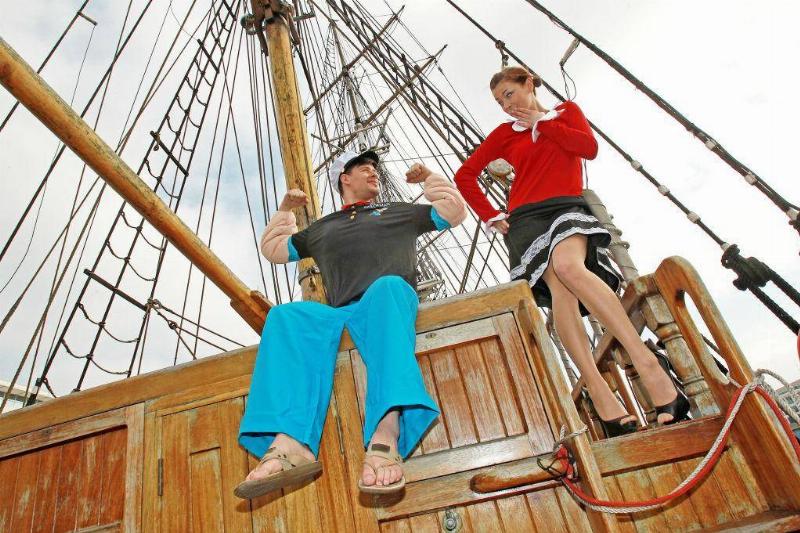
They Got Married In Real Life
He Inspired A Love Of Spinach
On the show, anytime Popeye ate spinach, he became strong and capable. It’s no surprise then that even during the Great Depression, spinach sales went up by 33% thanks to Popeye’s popularity. It was even the third most popular food with kids at the time. Even today, the second best selling brand of spinach win the Popeye spinach brand.
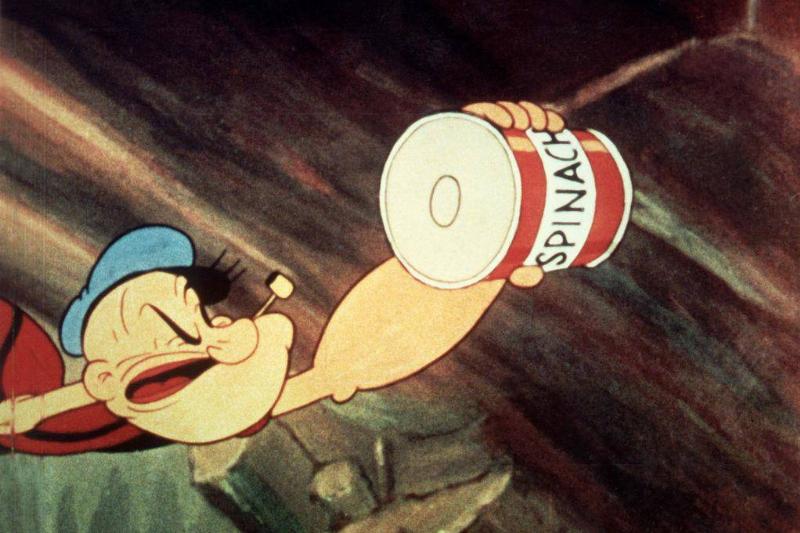
He Inspired A Love Of Spinach
Not Politically Correct
During WWII, Popeye cartoons had some offensive content depicting Japanese people in a very negative way, which has definitely not aged well. It was meant to boost morale of American soldiers, as cartoons often were used for at the time. Now, these racist portrayals of other cultures are usually edited out.
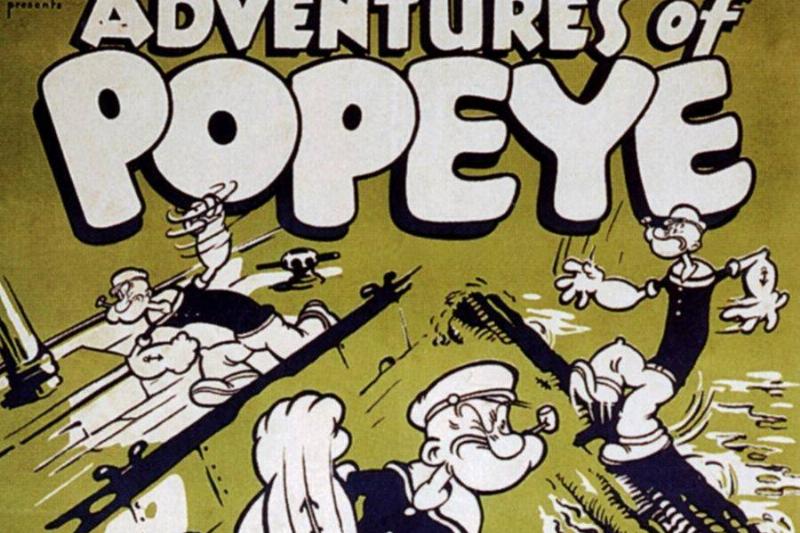
Not Politically Correct
His Nemesis
Popeye’s greatest enemy is Brutus, who was originally named Bluto, who competes with Popeye for Olive Oyl’s affections. Brutus is a bully, but sometimes the two were portrayed as friends. However, it usually ends with Brutus betraying Popeye.
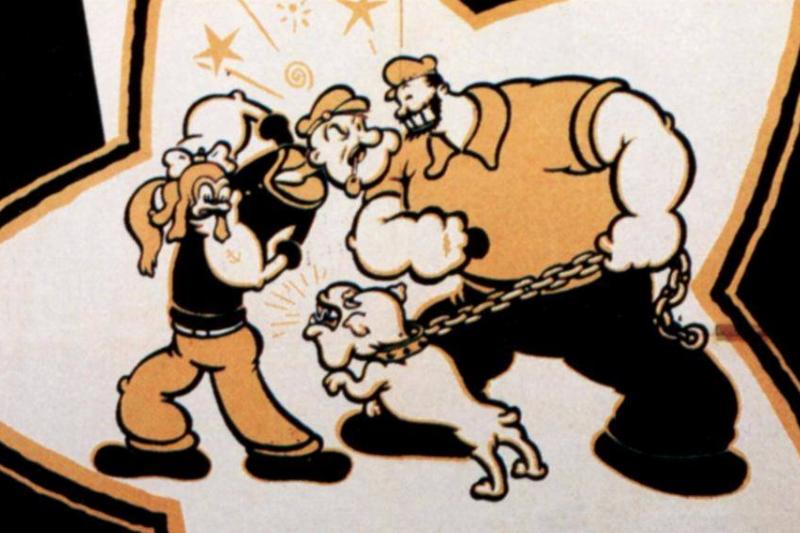
His Nemesis
Betty Boop’s Help
Popeye initially started out in a comic strip, but he became very well known after appearing in a 1933 Betty Boop cartoon called Popeye the Sailor. By 1938, he was the most popular cartoon character coming out of Hollywood.
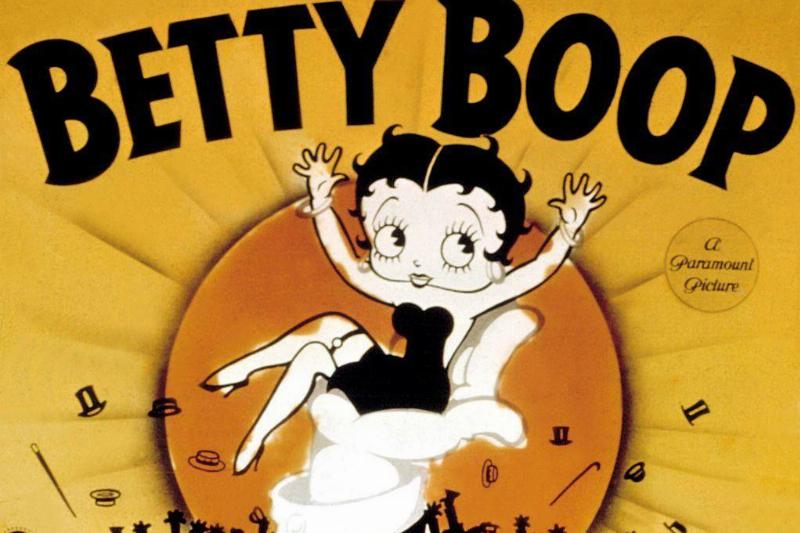
Betty Boop’s Help
Where’s Popeye?
In the 1988 film Who Framed Roger Rabbit? which was set in 1947, several cartoon characters show up in the real world. The main character, Eddie Valiant is a private detective trying to figure out who framed cartoon character Roger Rabbit for murder. Nearly every prominent cartoon character in history makes an appearance in the film, but Popeye was absent. The reason was because Disney was not able to get the rights to the character from Paramount.
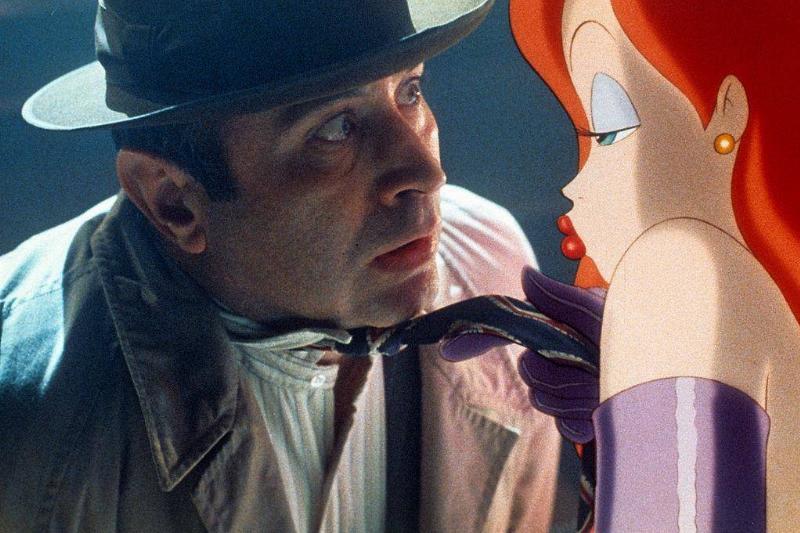
Where’s Popeye?
Not So Funny
In the 1960’s, The King Features took over the creation of Popeye cartoons, and many people felt that these didn’t have the same quality as the preceding cartoons. Many said that they were not funny and even unwatchable. Interestingly, producer Al Brodax ended up creating 1968 Beatles animated film Yellow Submarine, which is regarded as a classic.
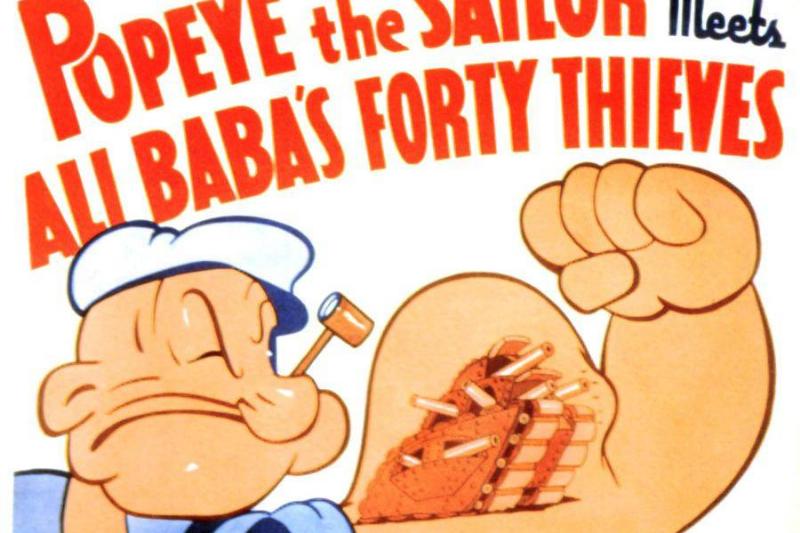
Not So Funny
Public Domain Everywhere But The US
In 2009, Popeye joined the public domain in Europe, meaning anyone is able to use the character without having pay royalties. However, he is still under copyright in the U.S. until 2025.
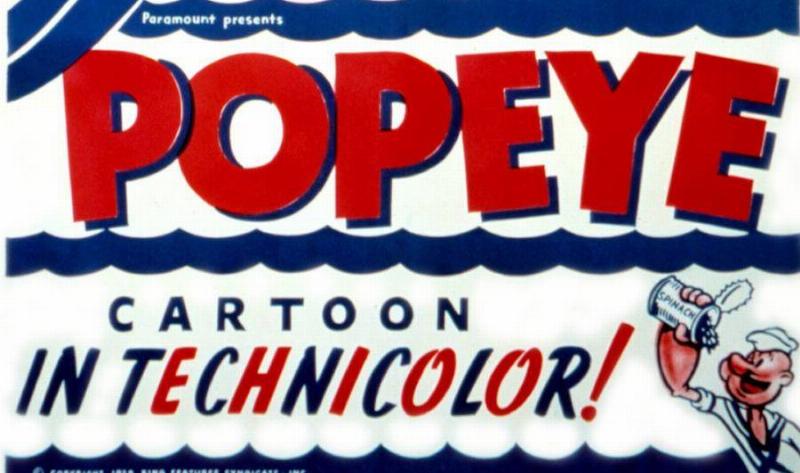
Public Domain Everywhere But The US



